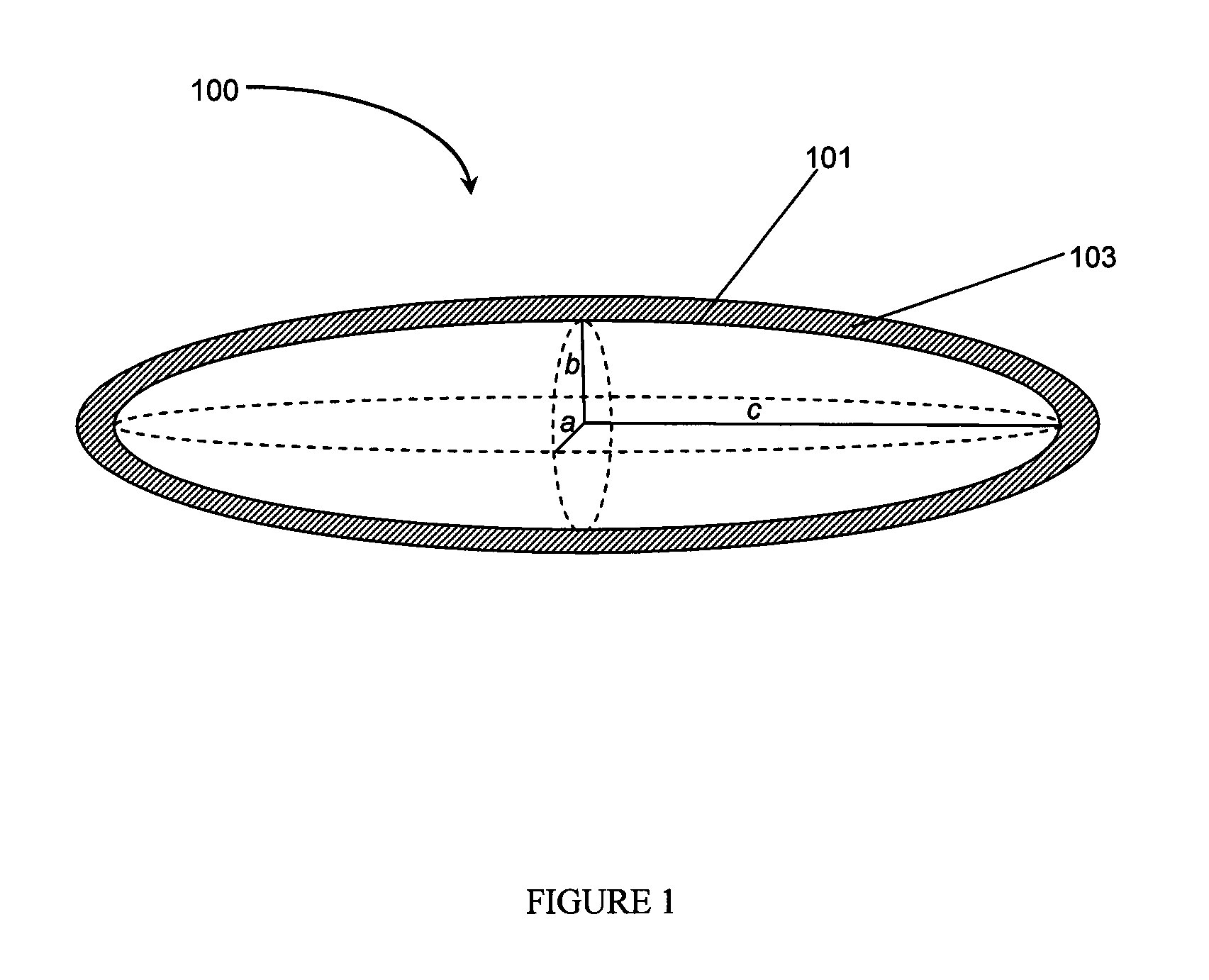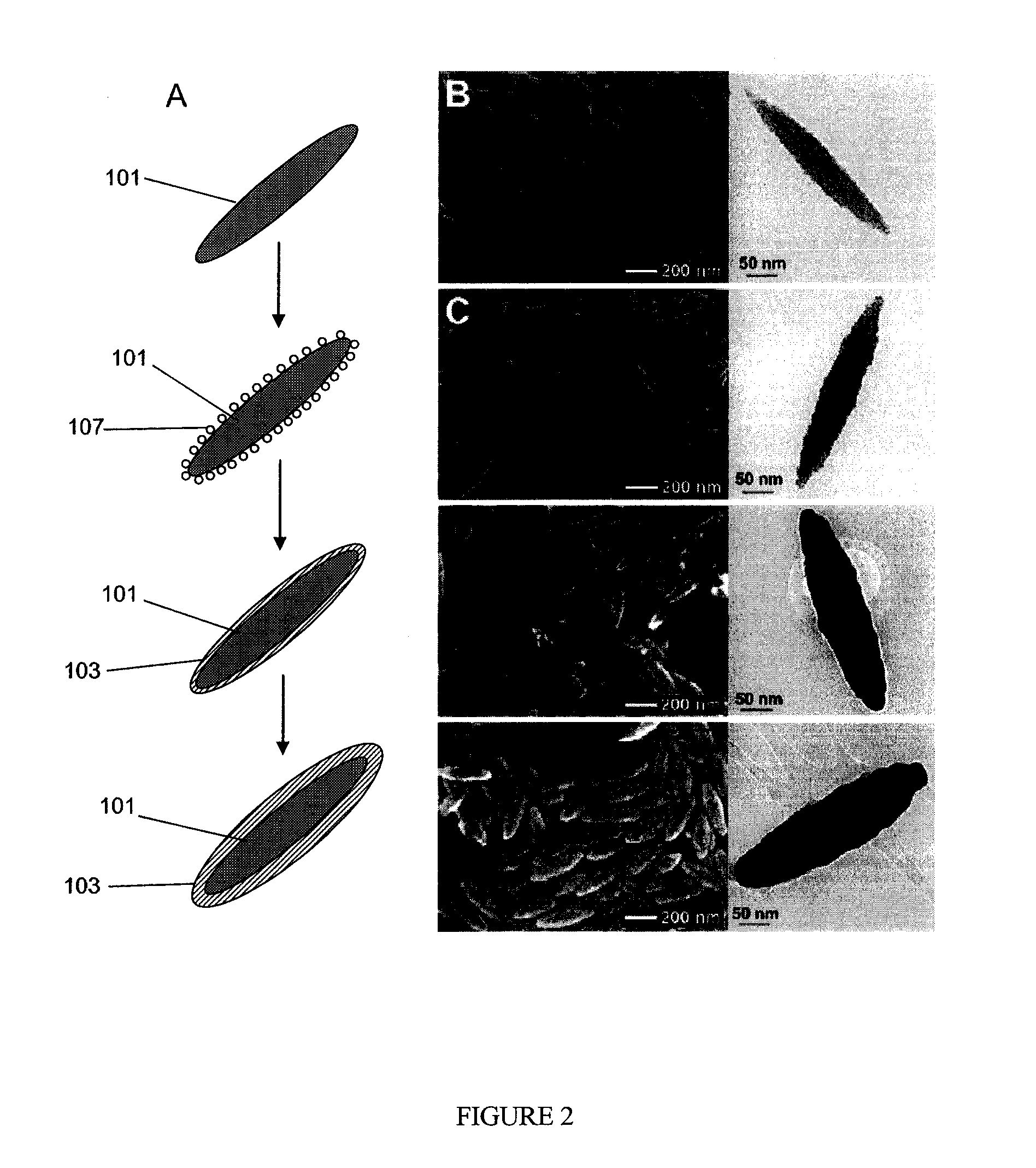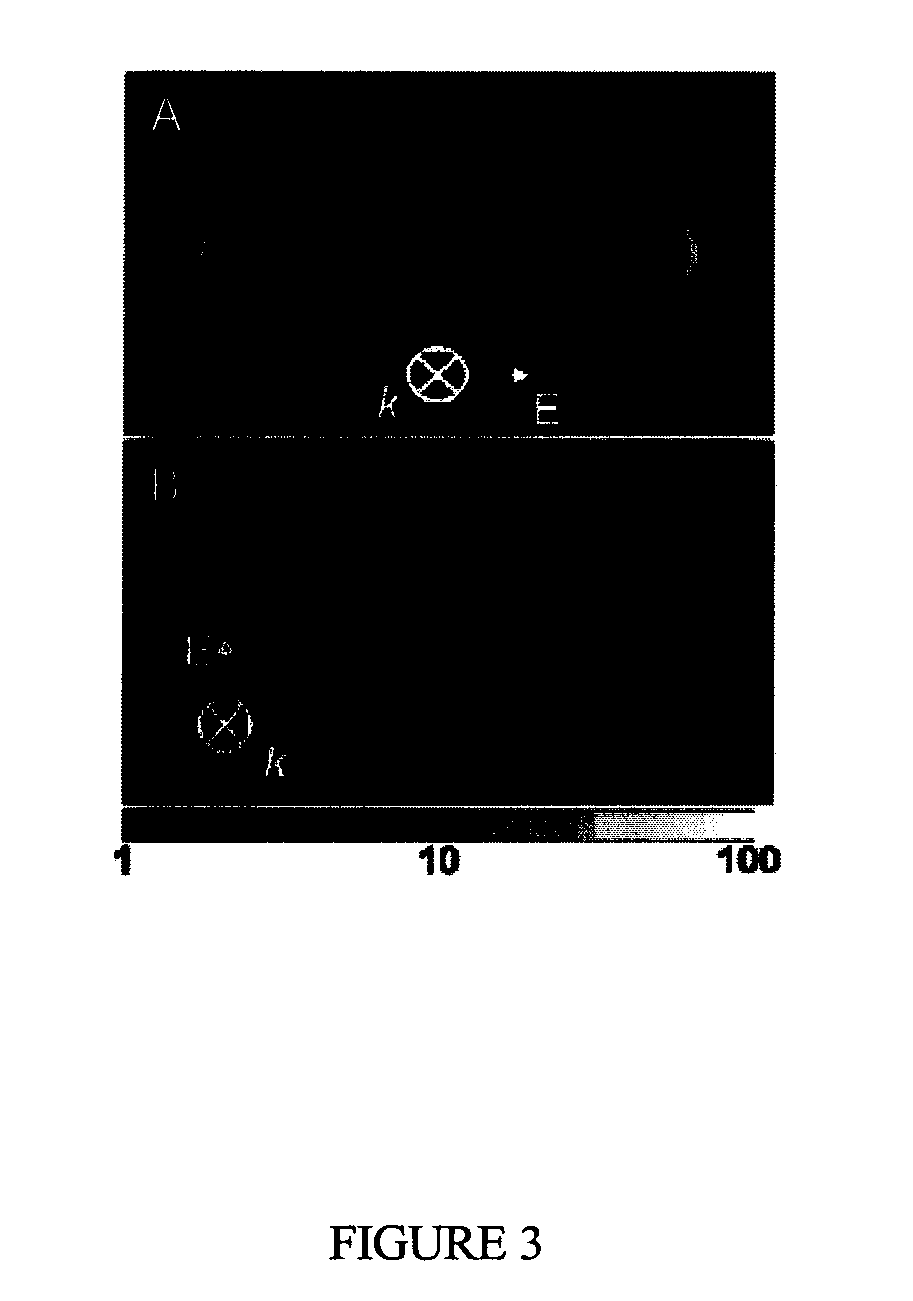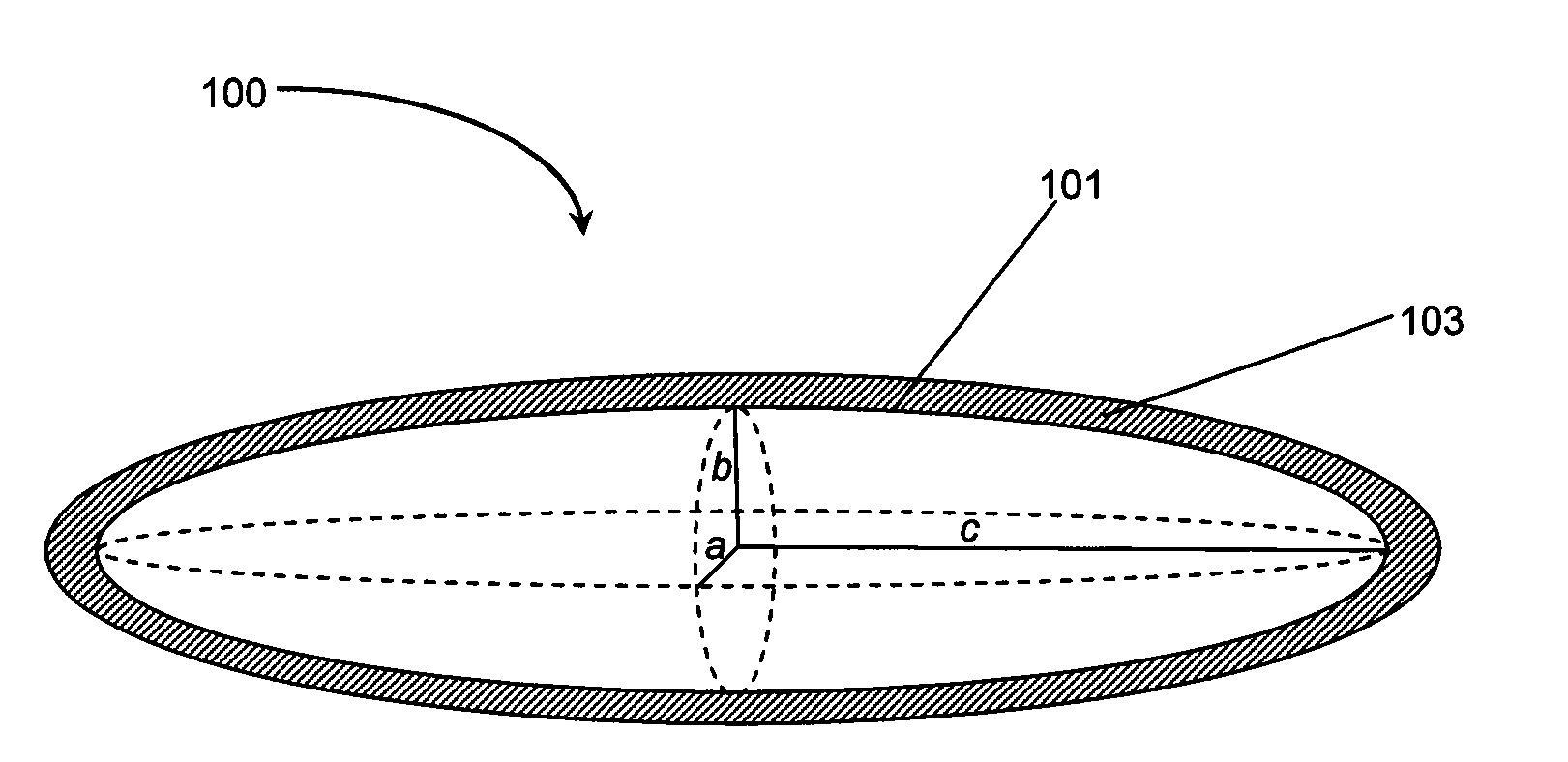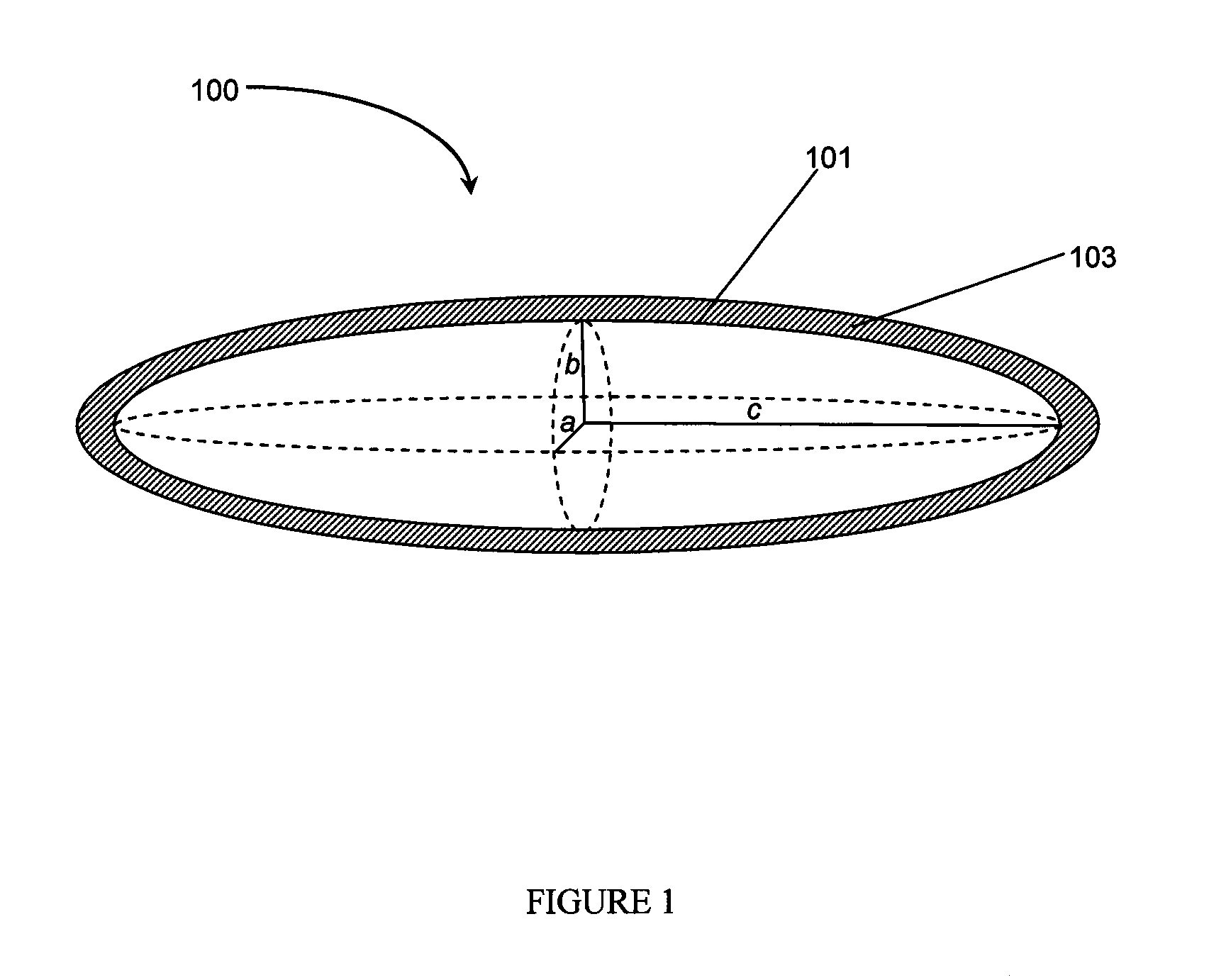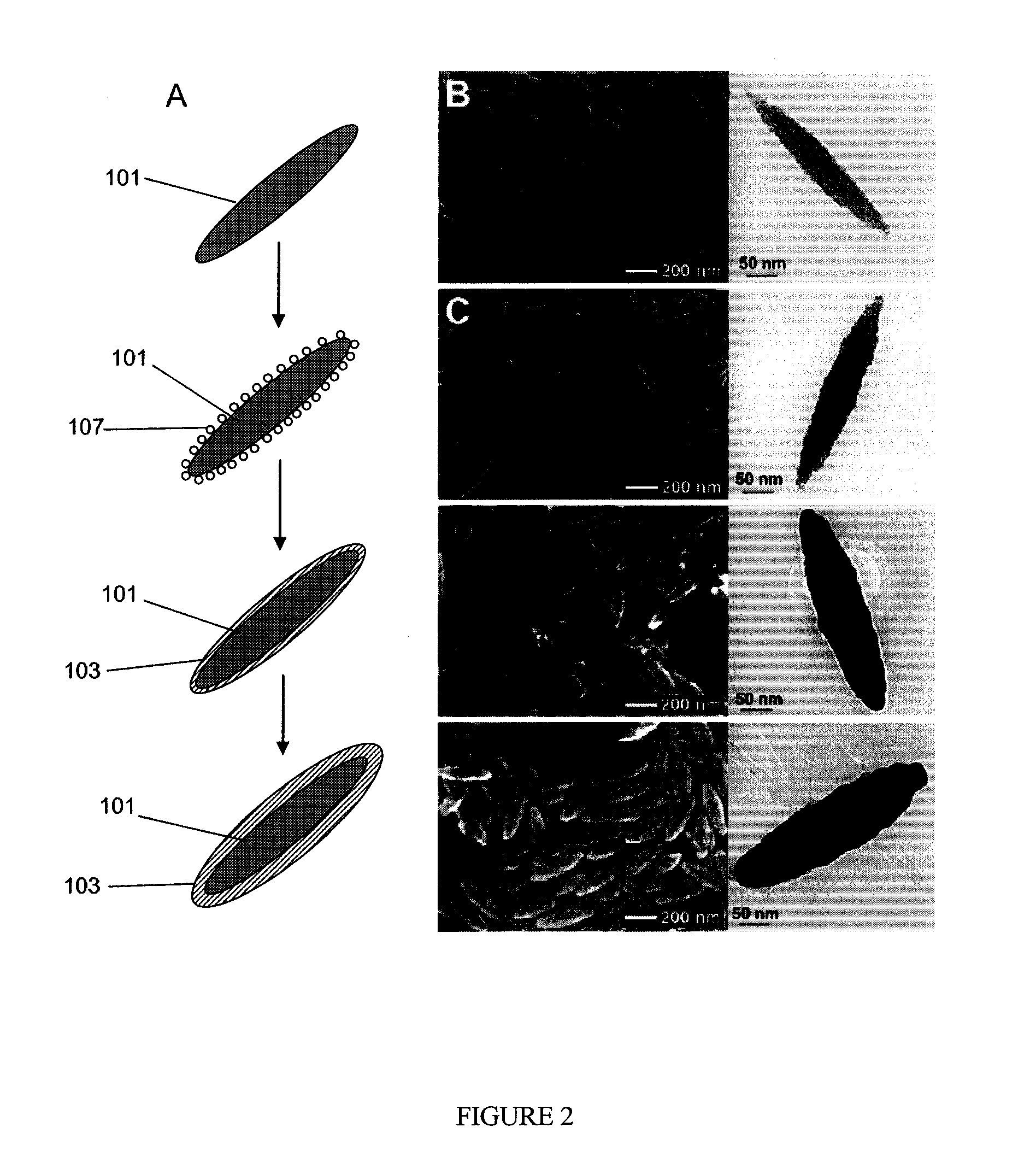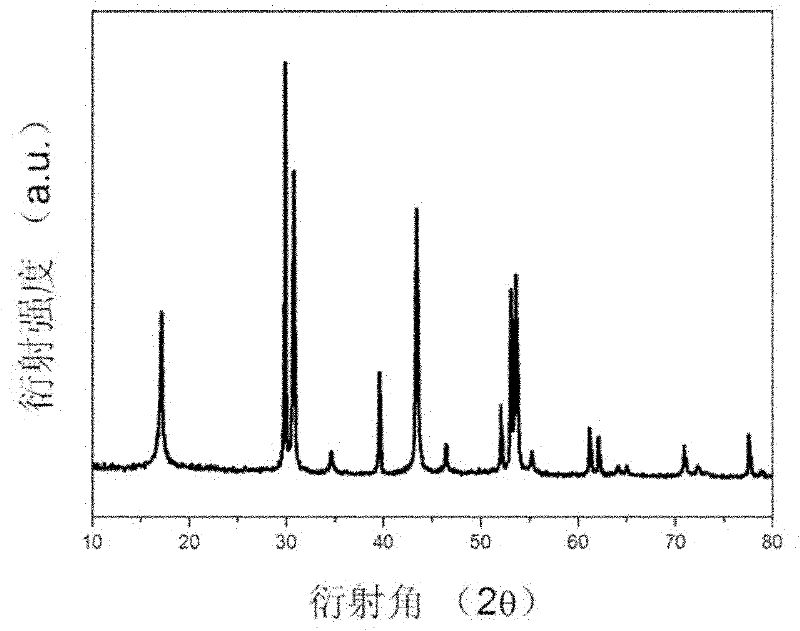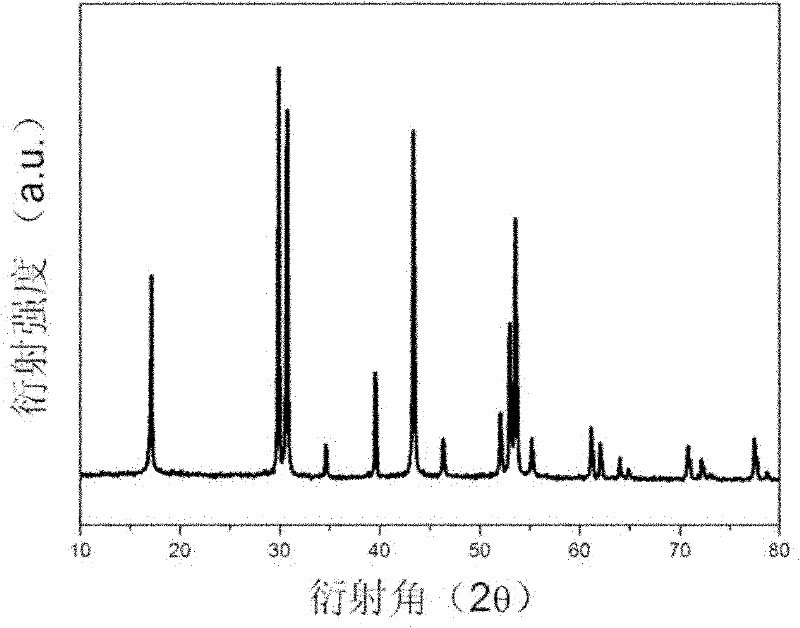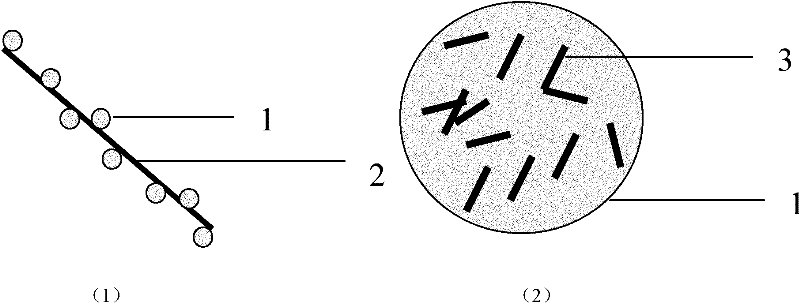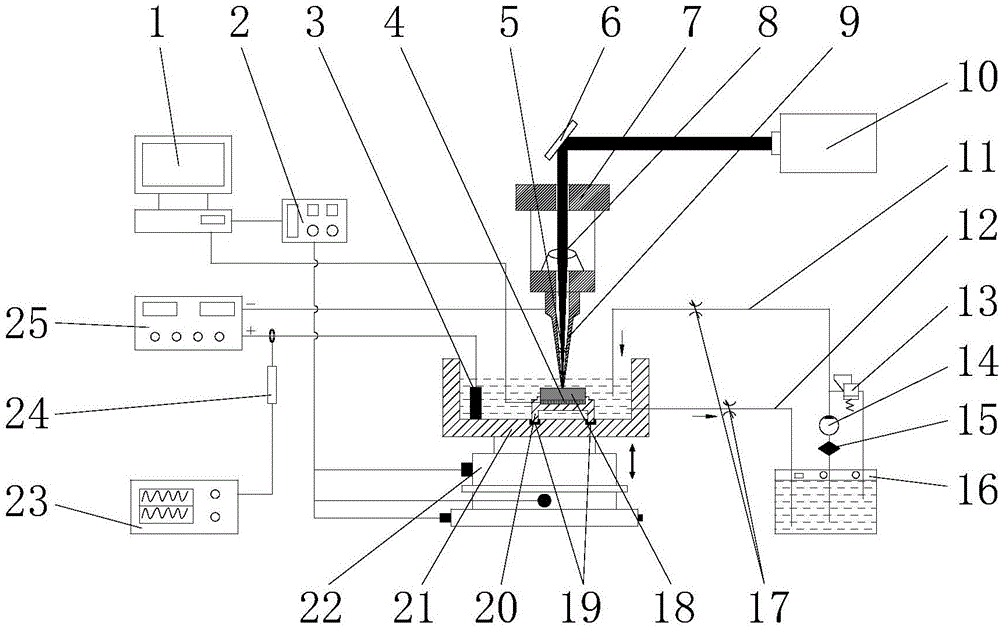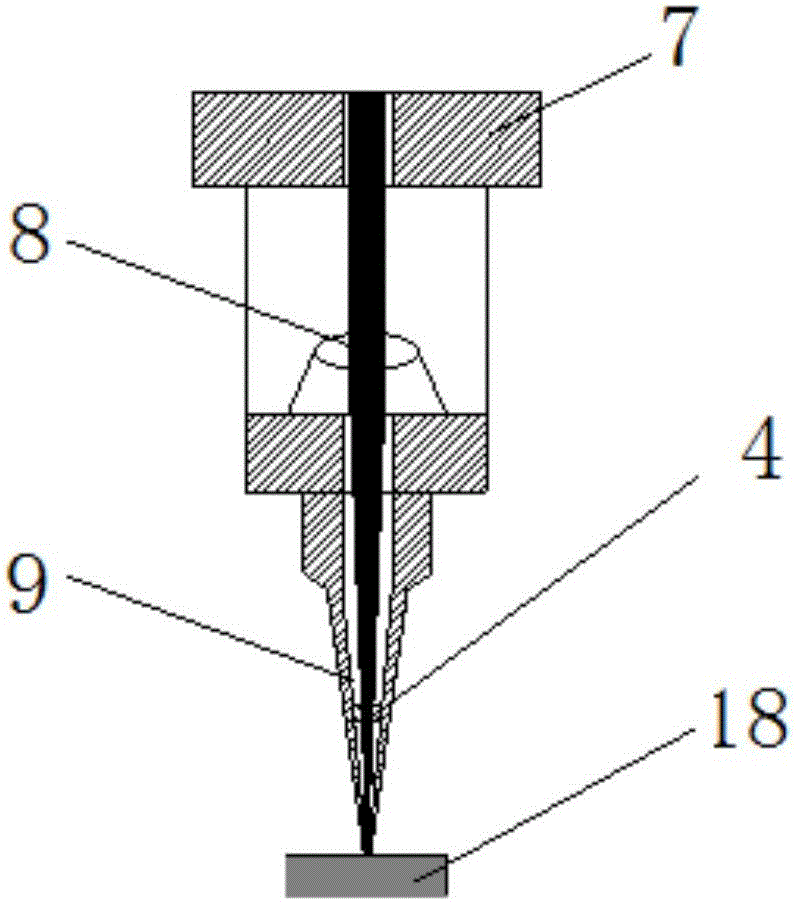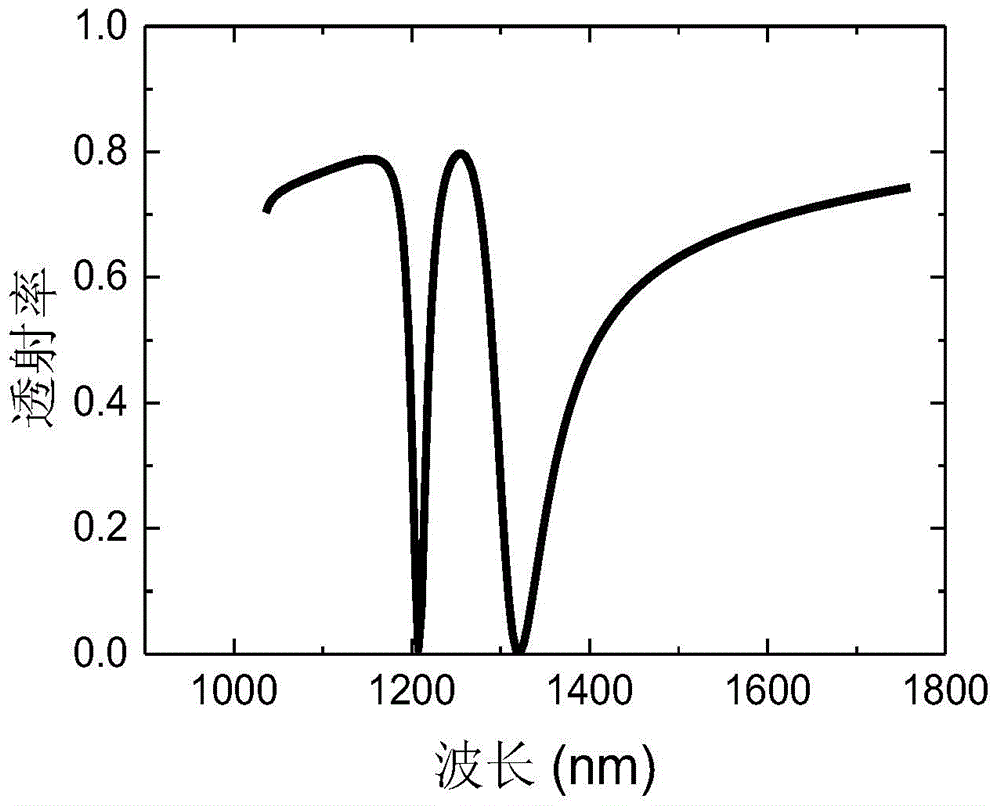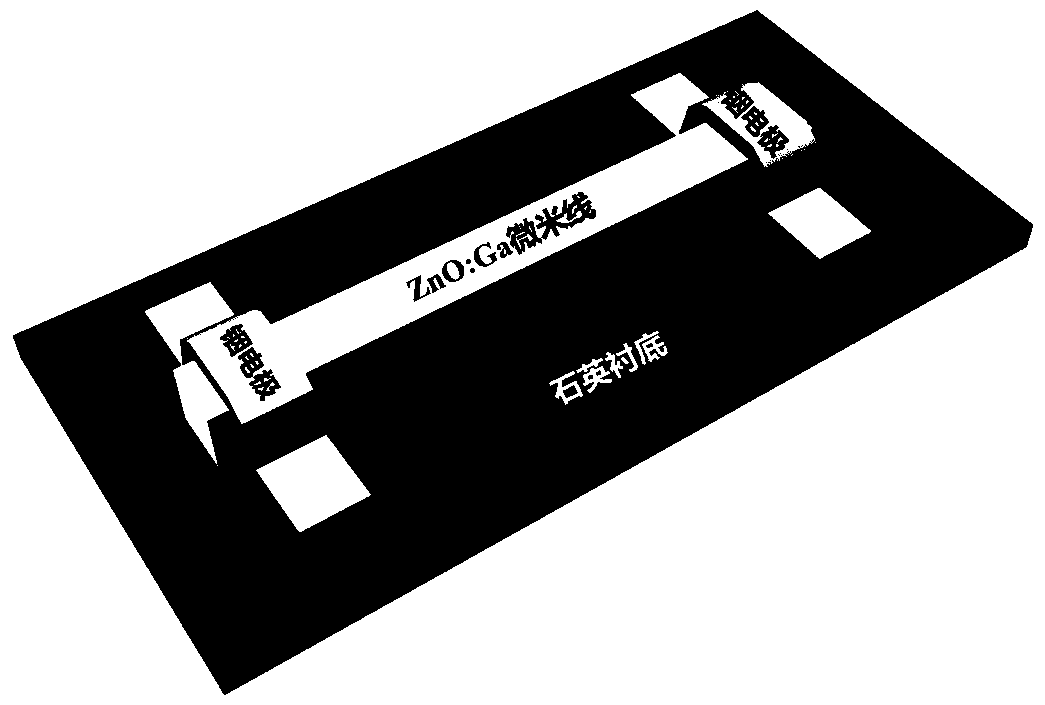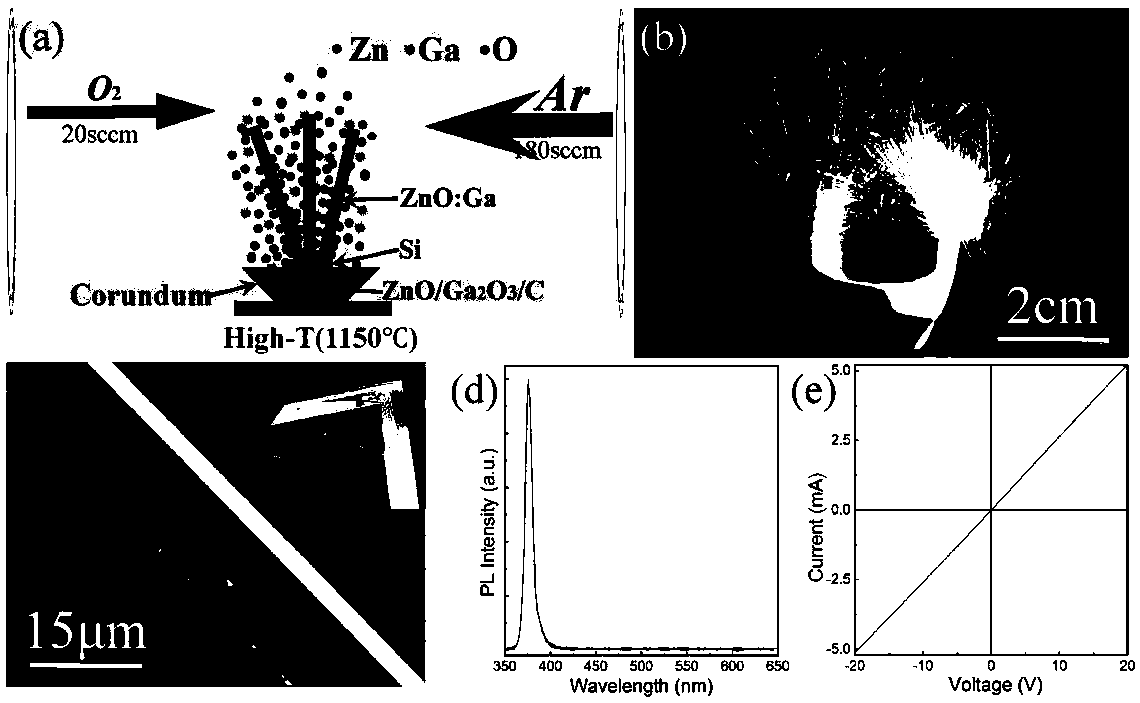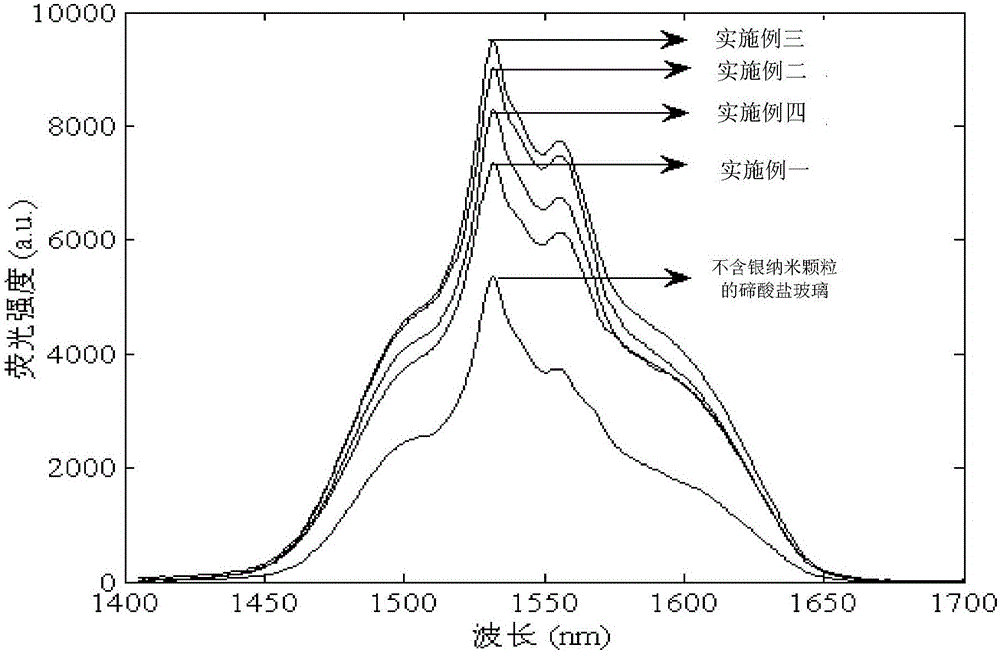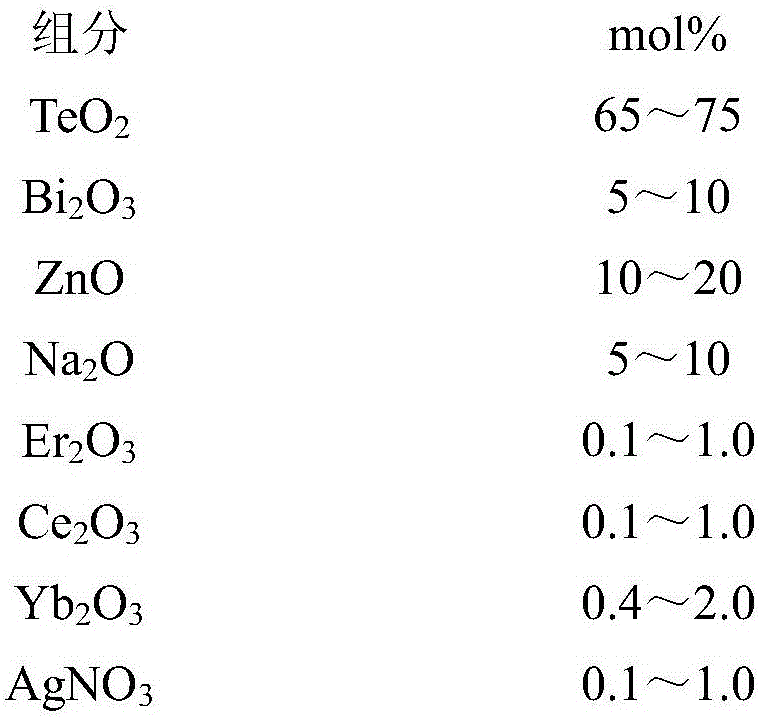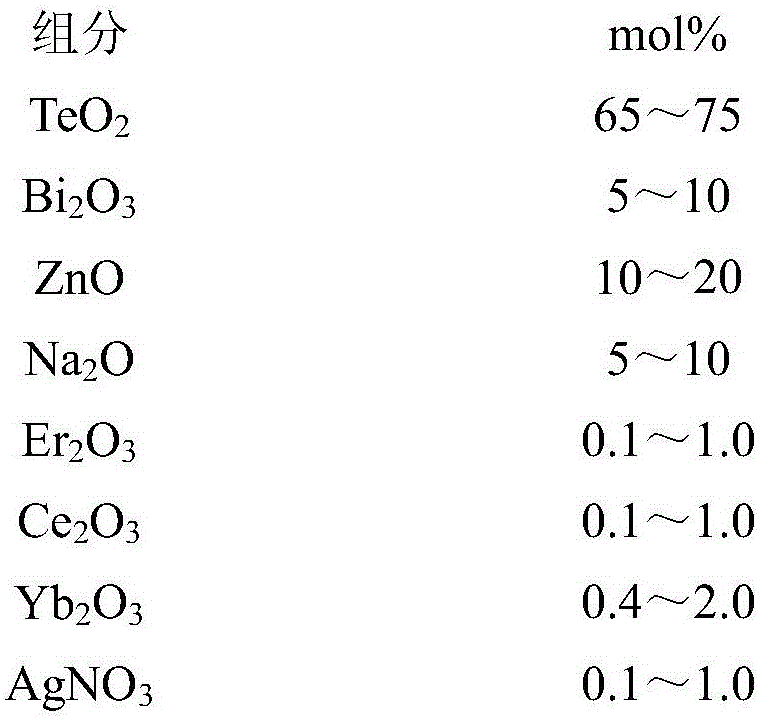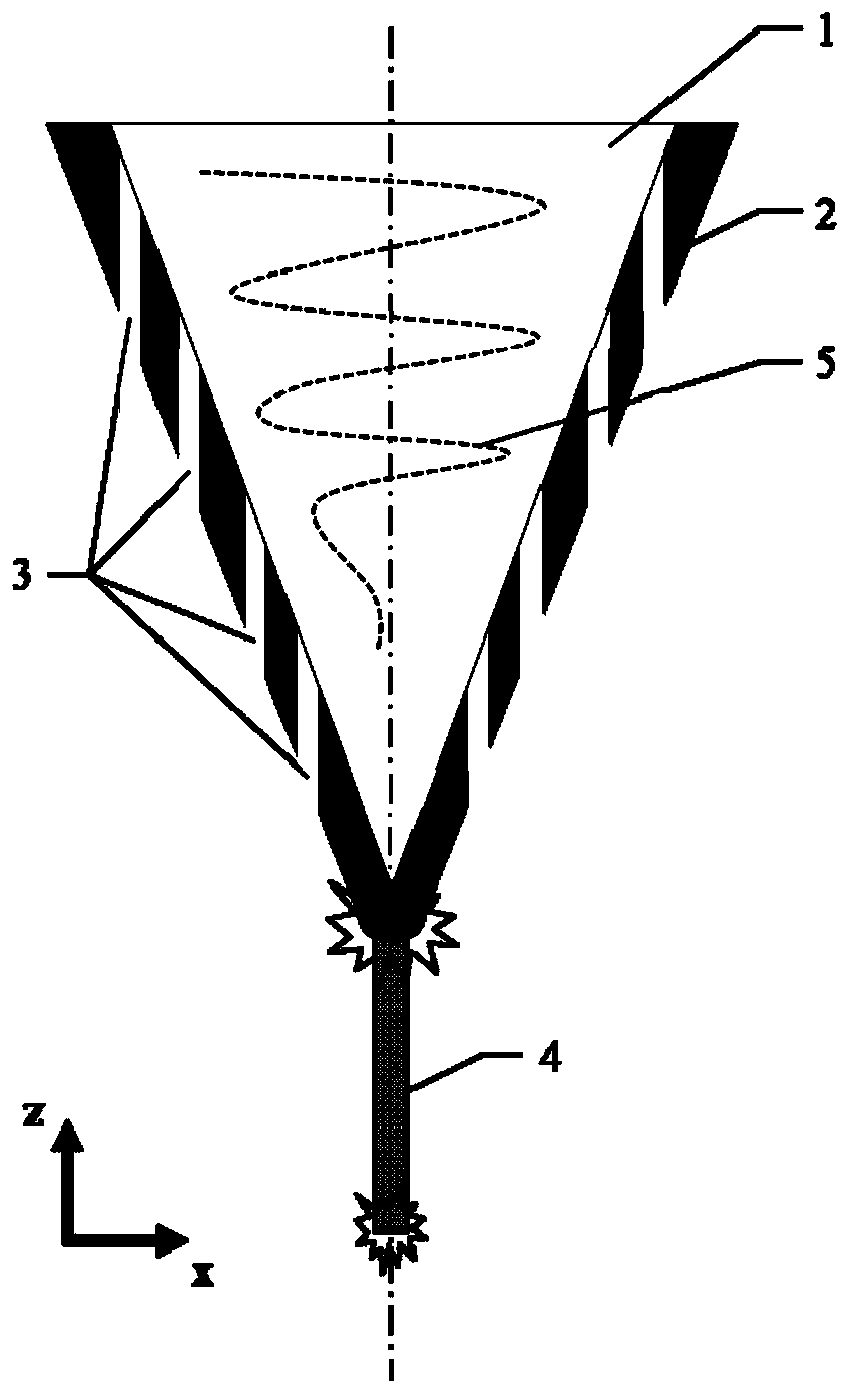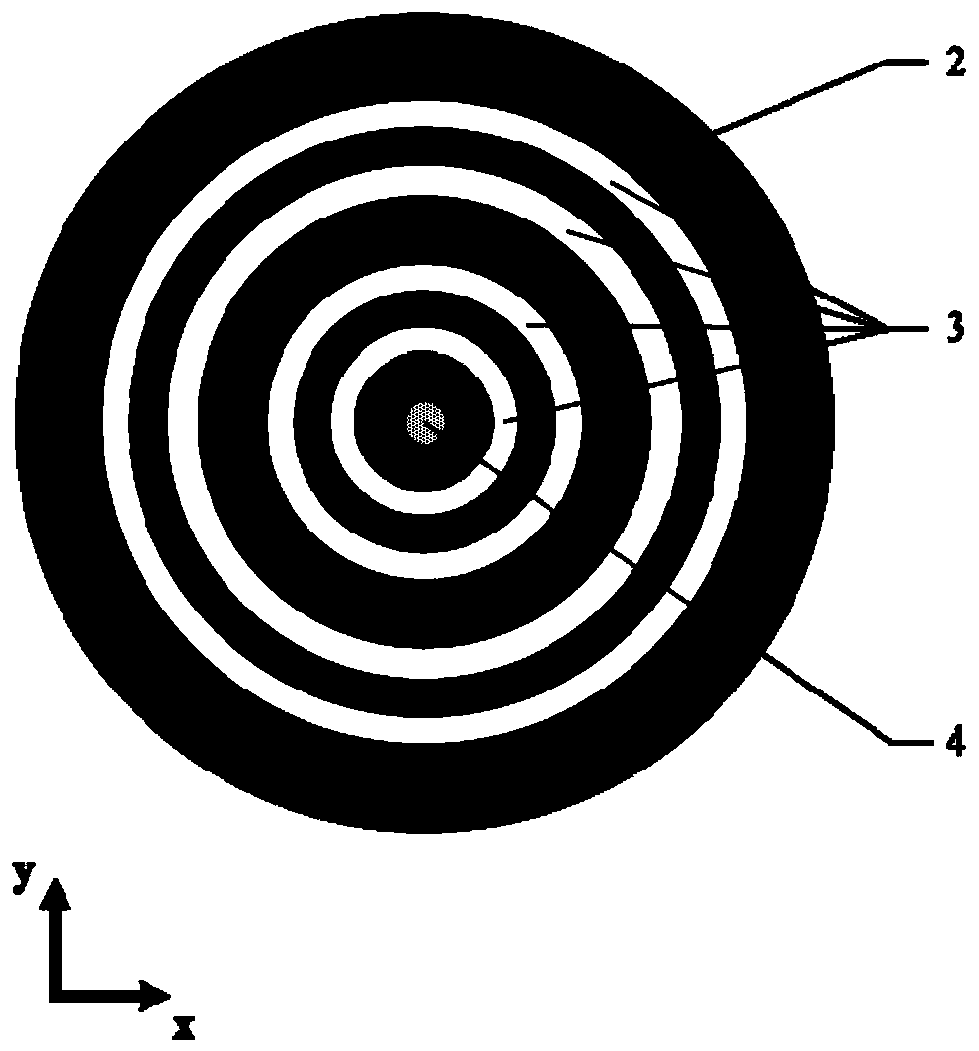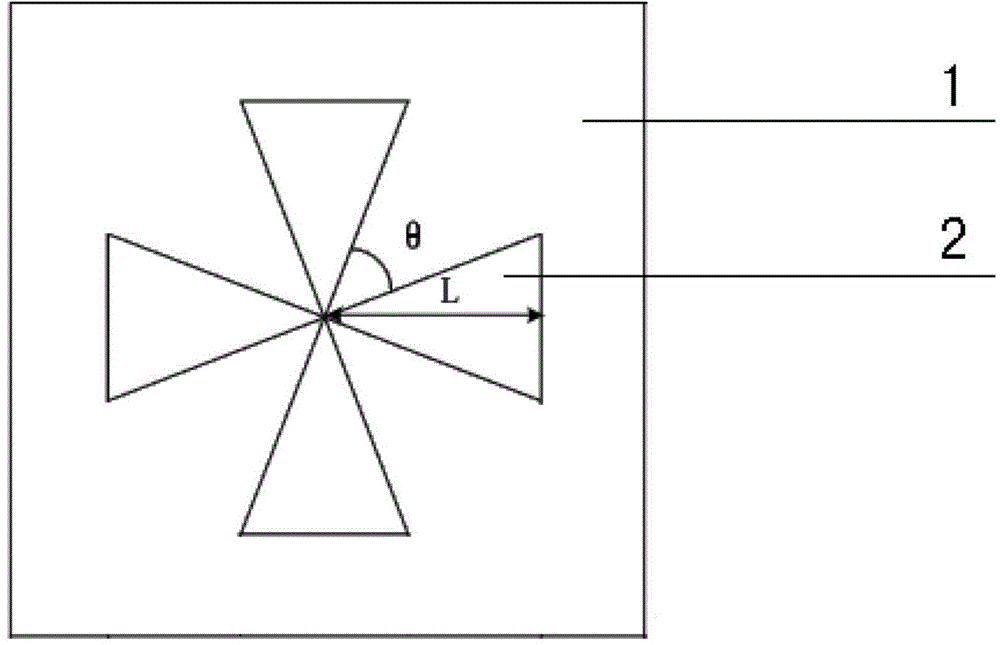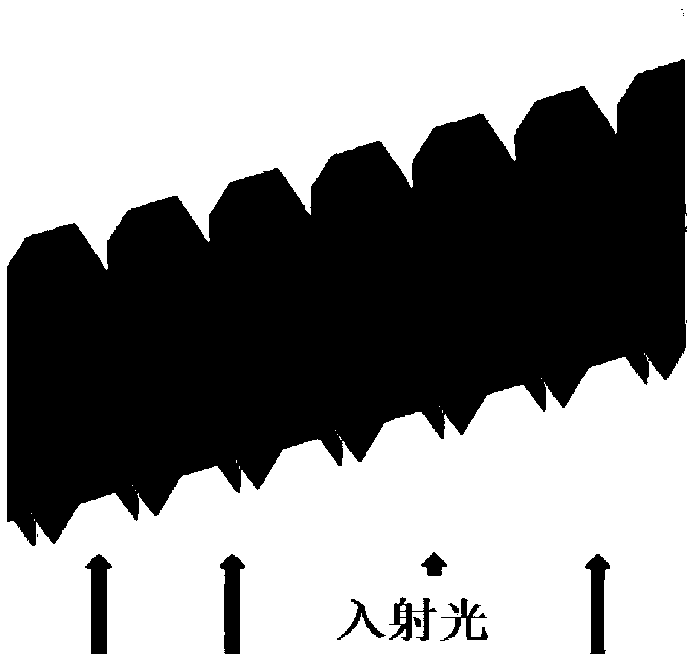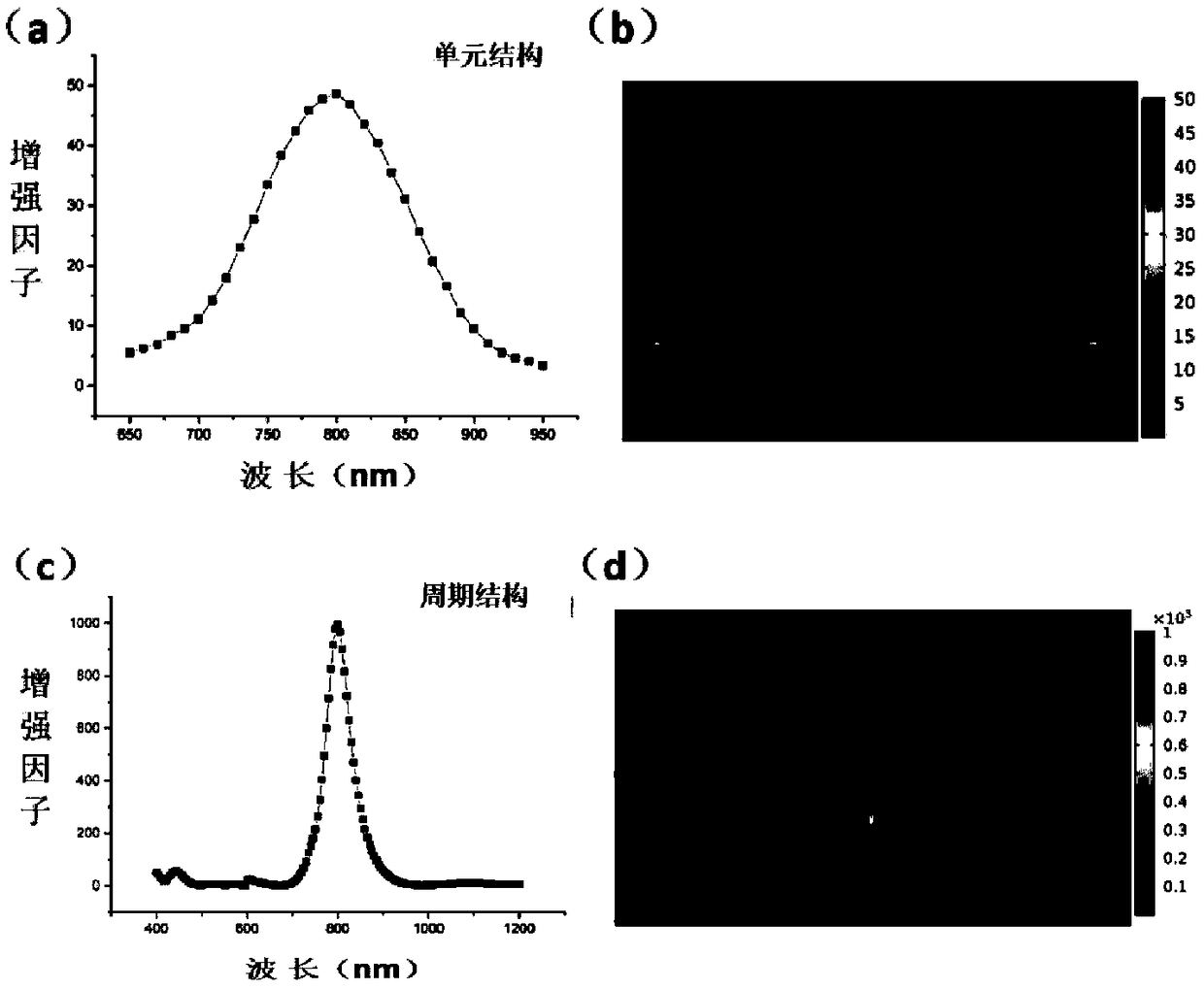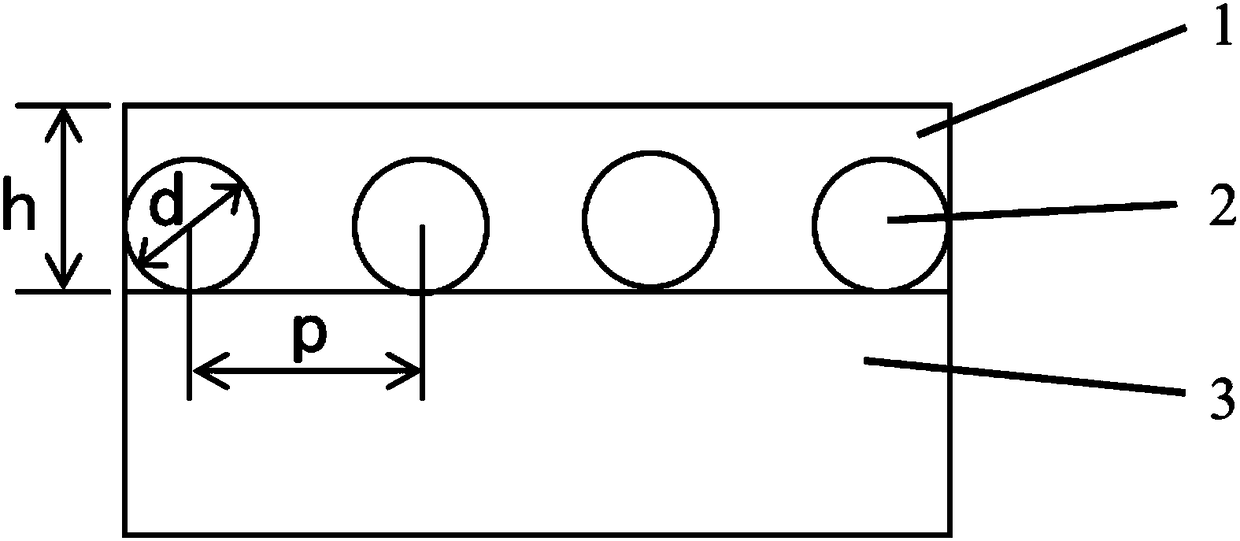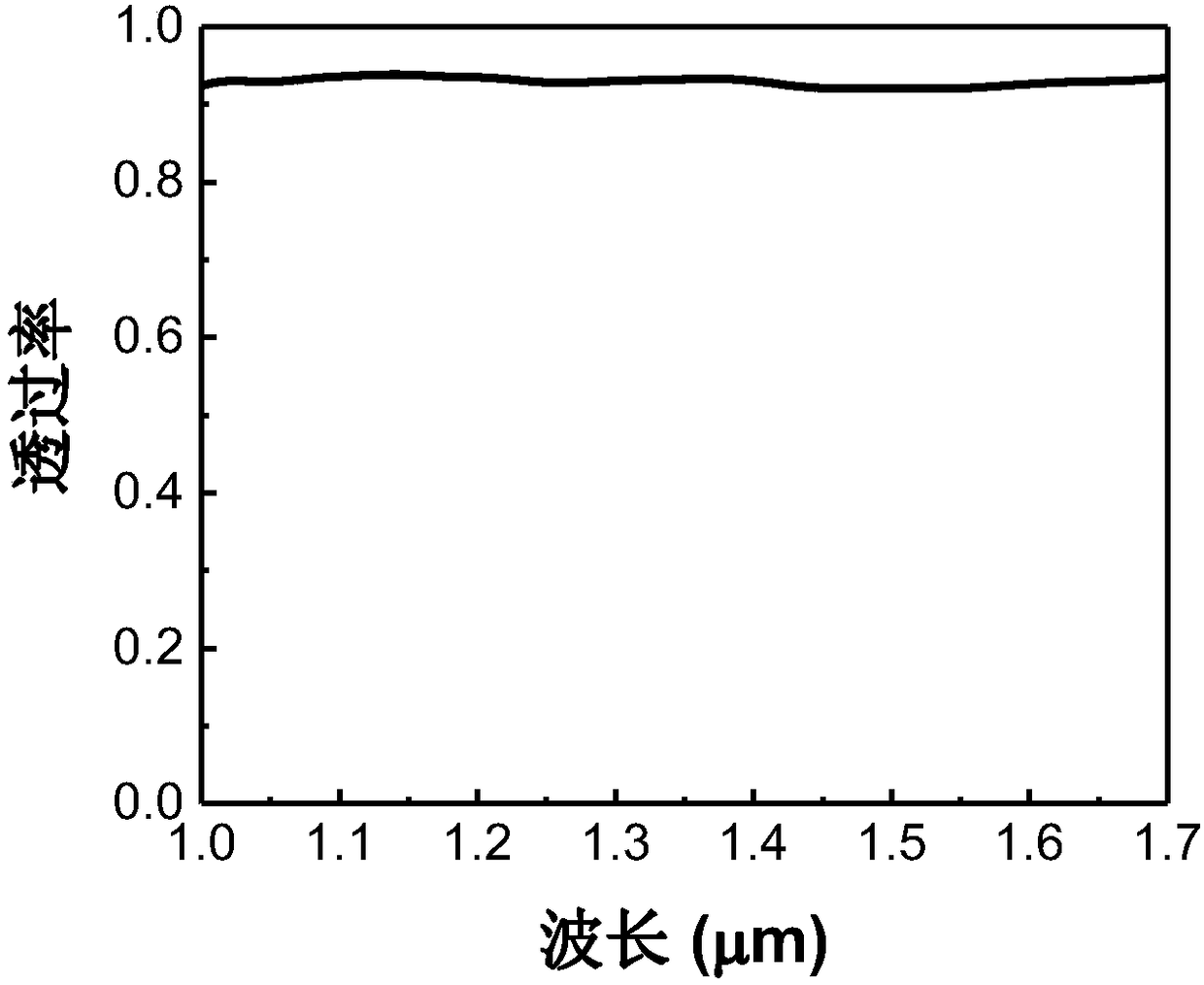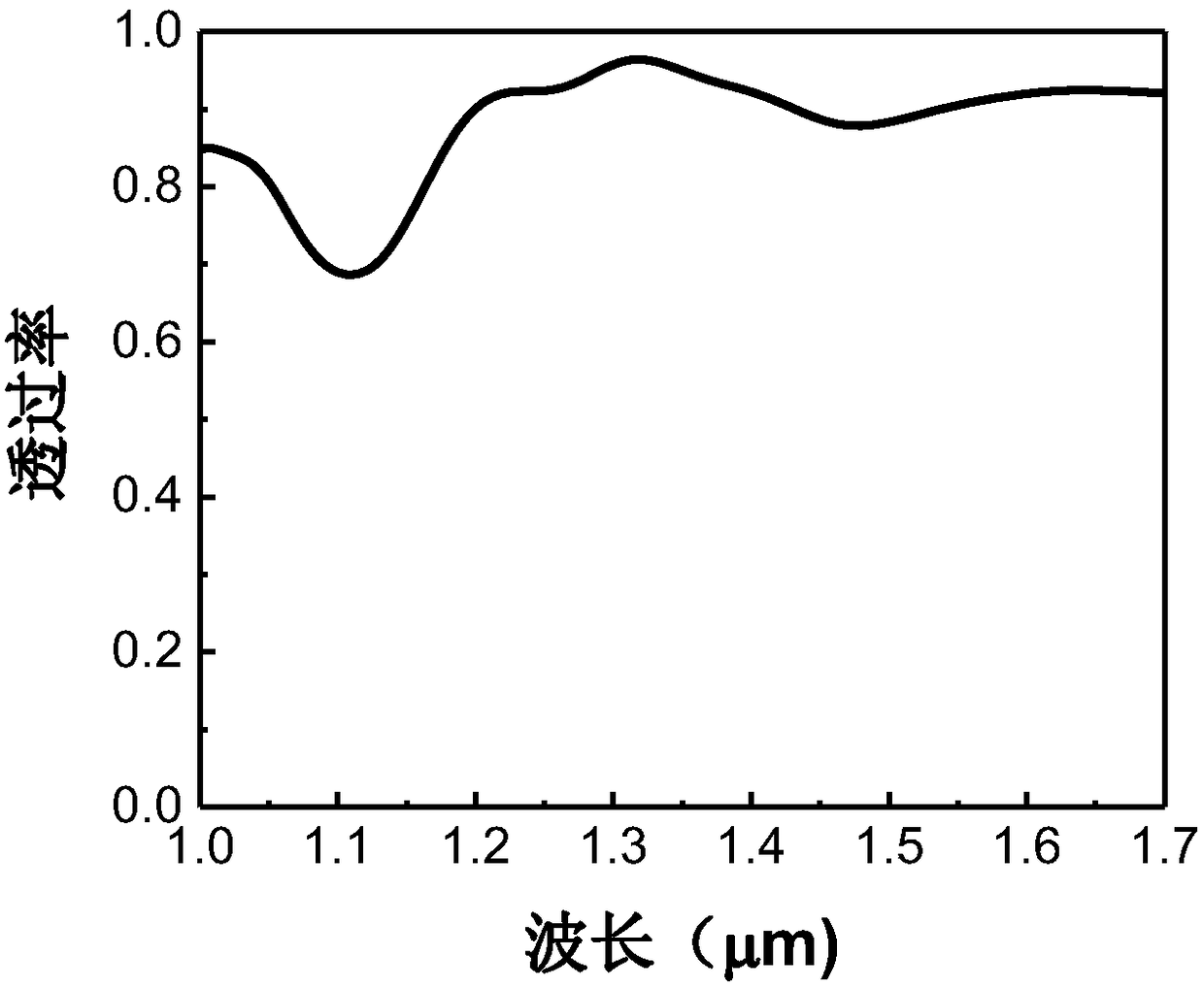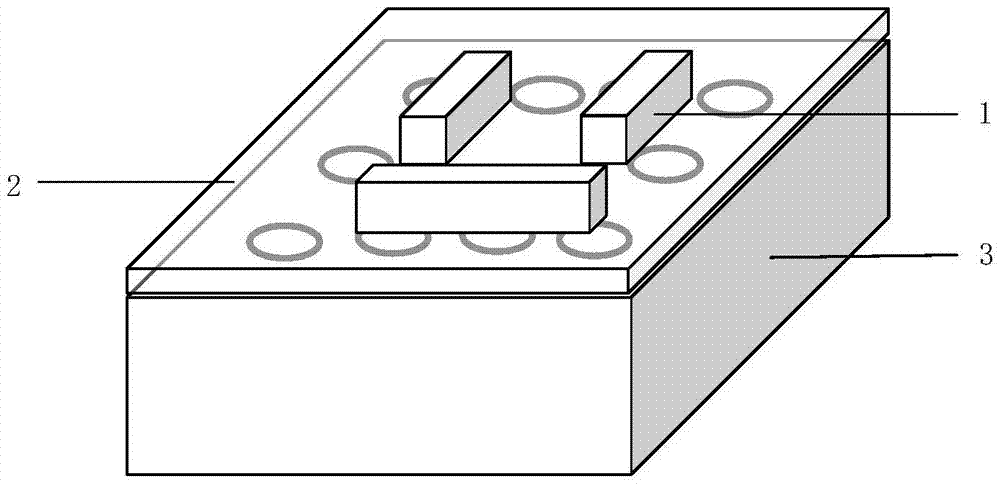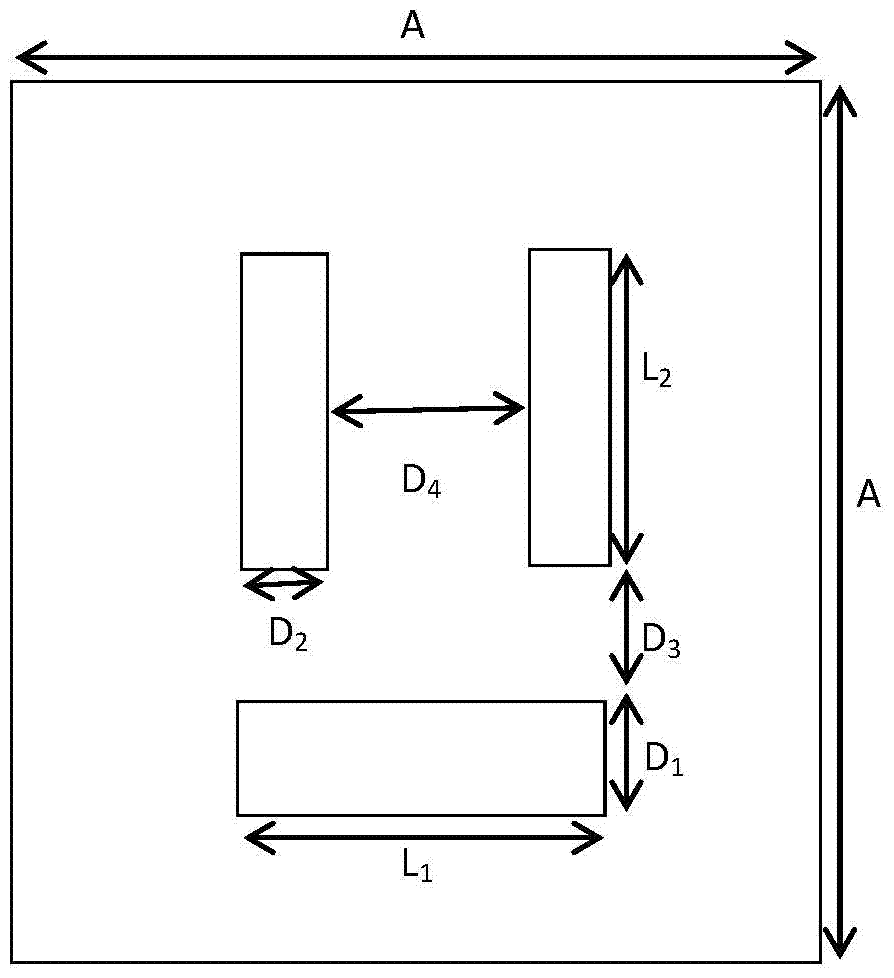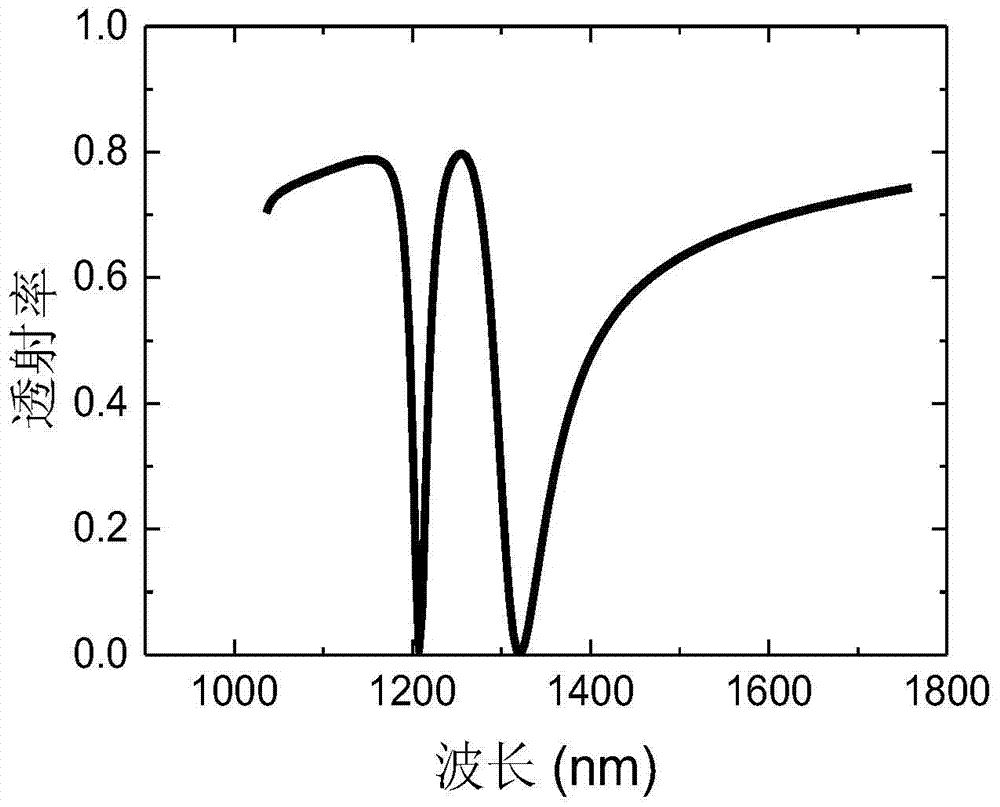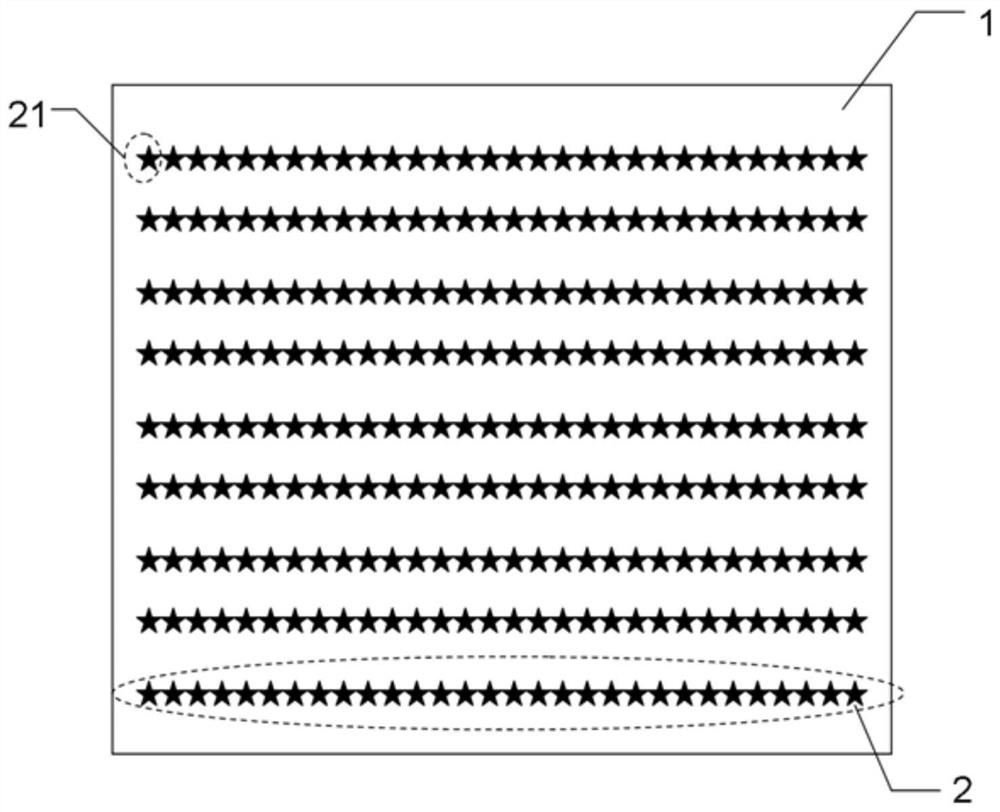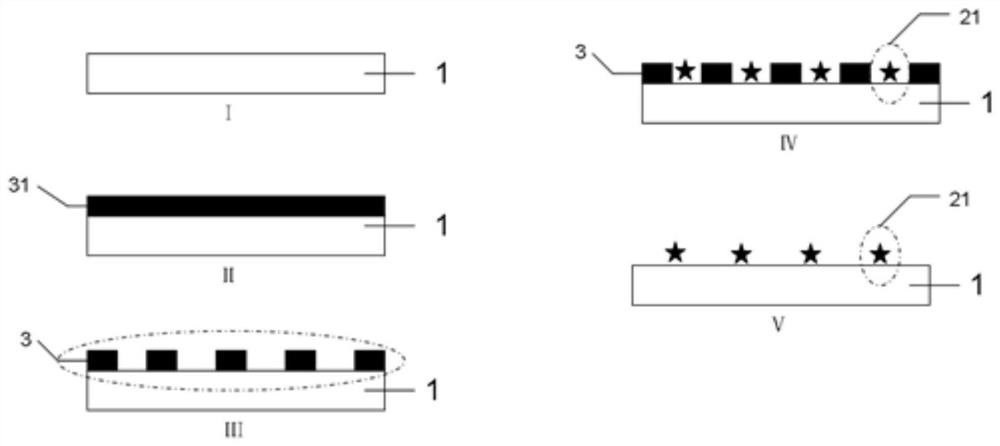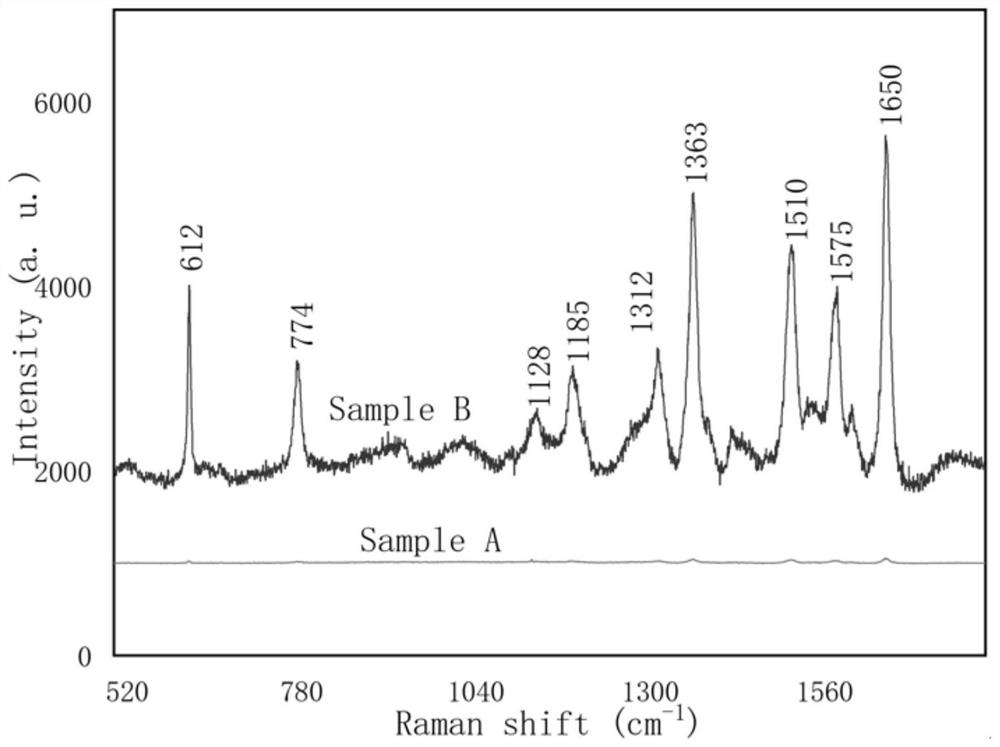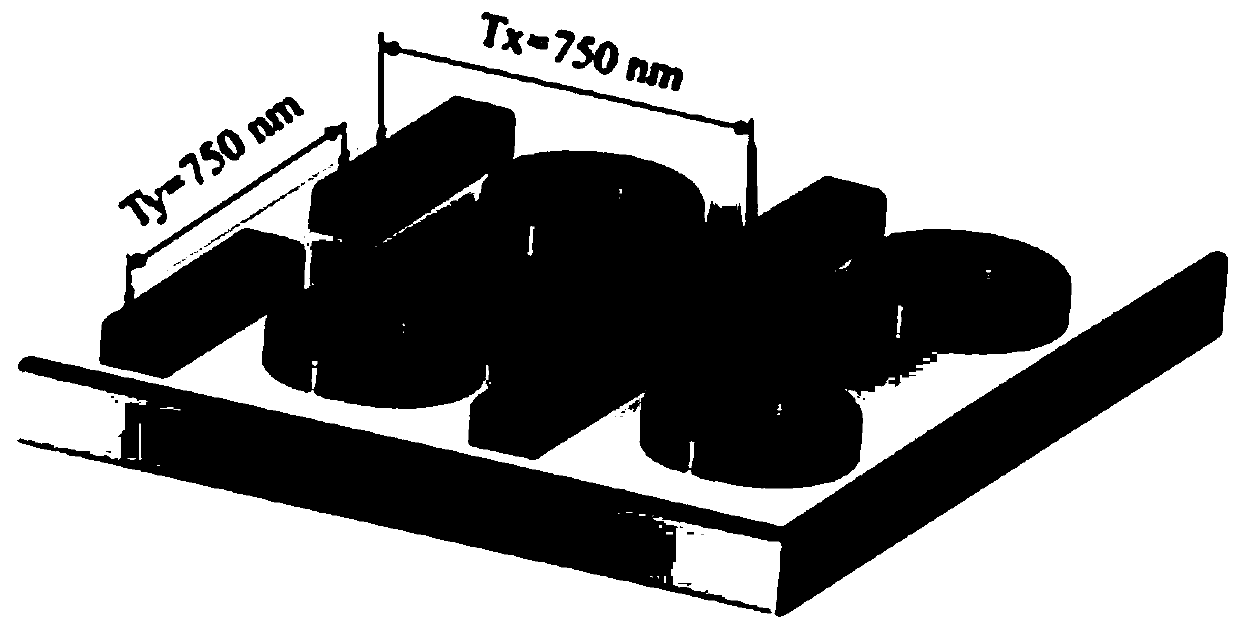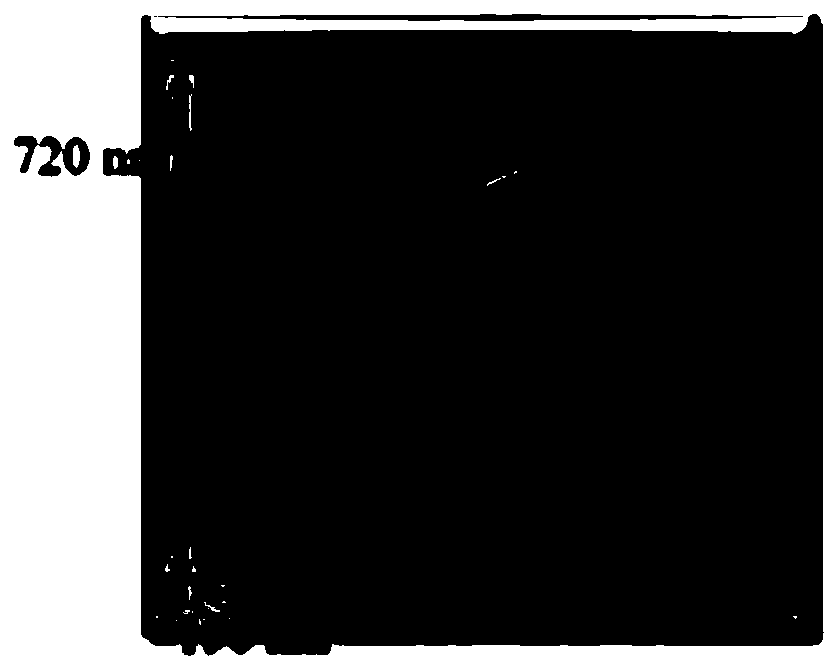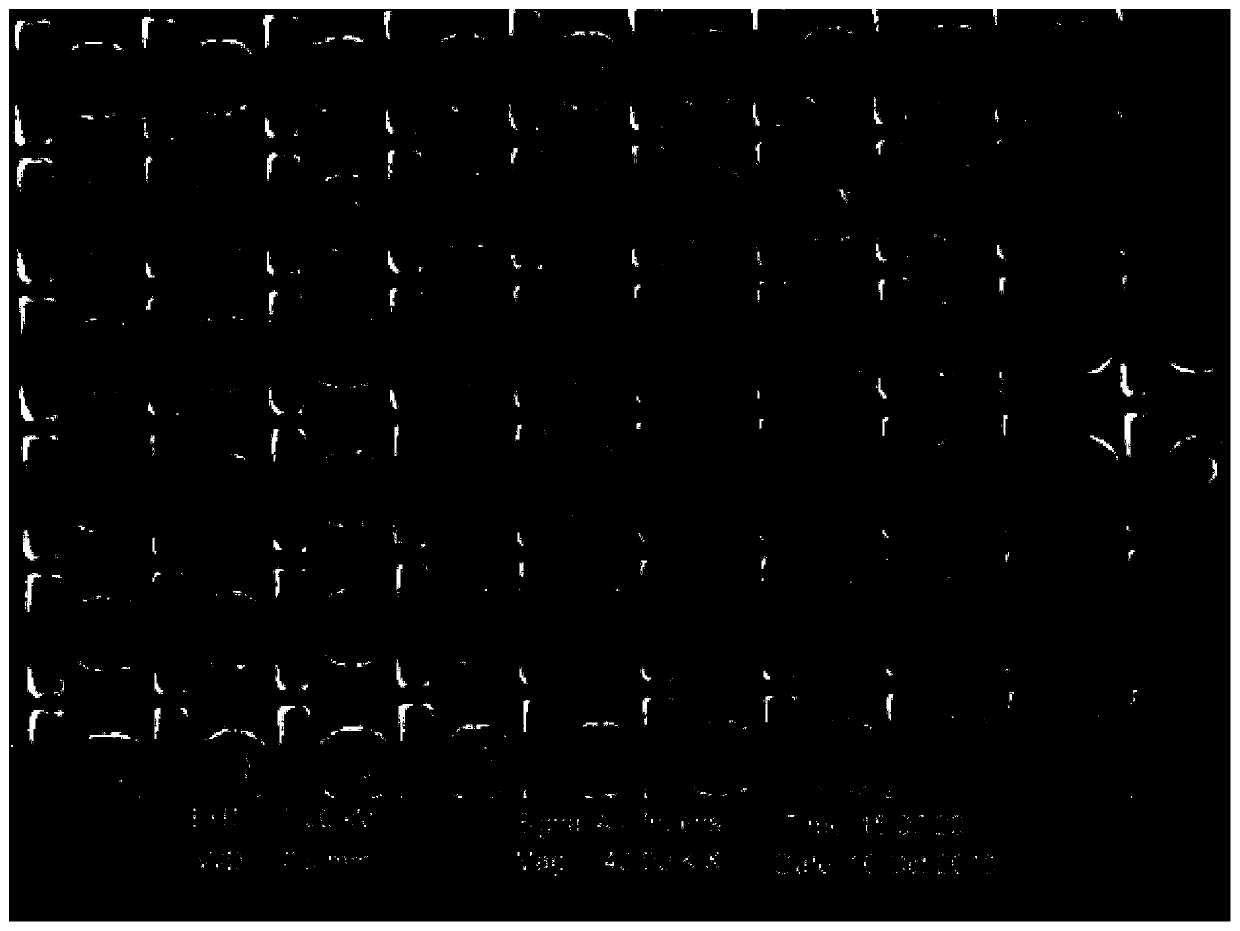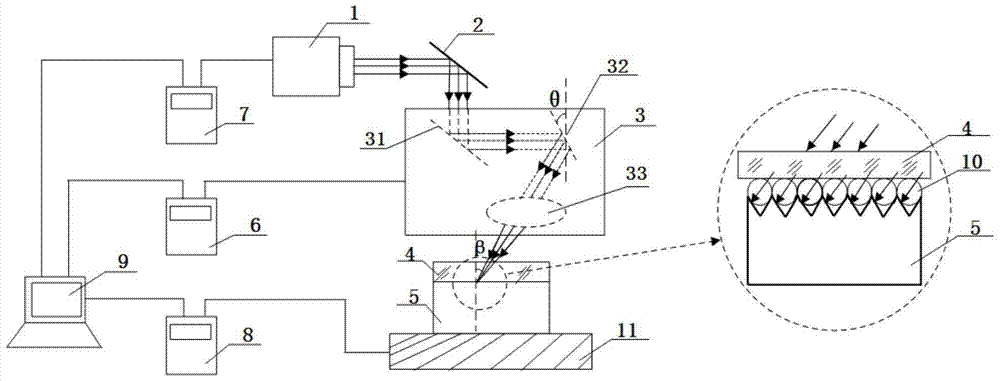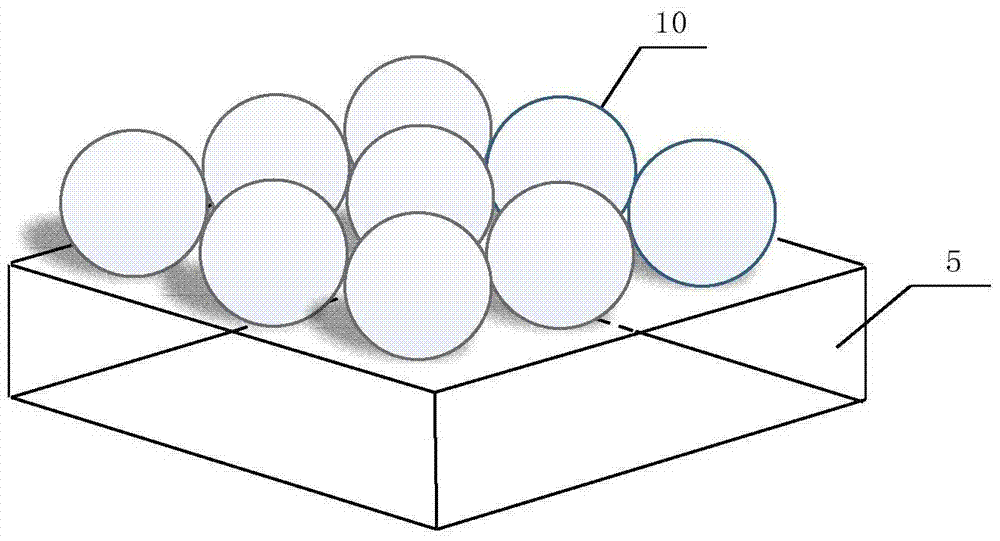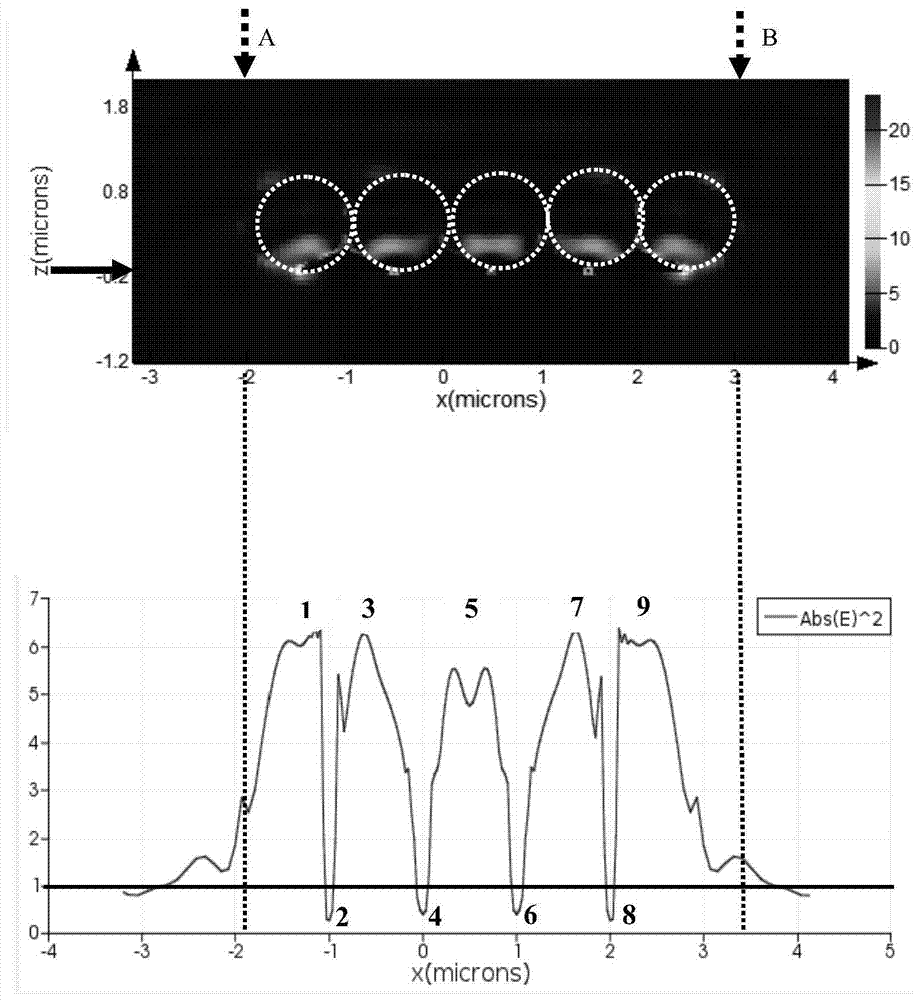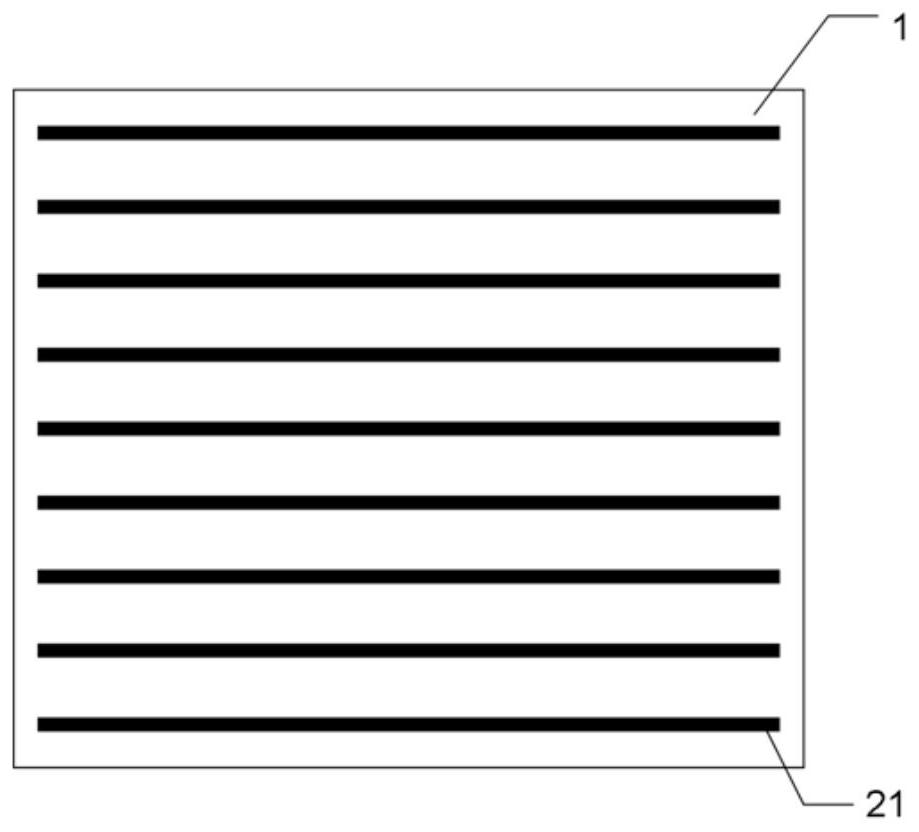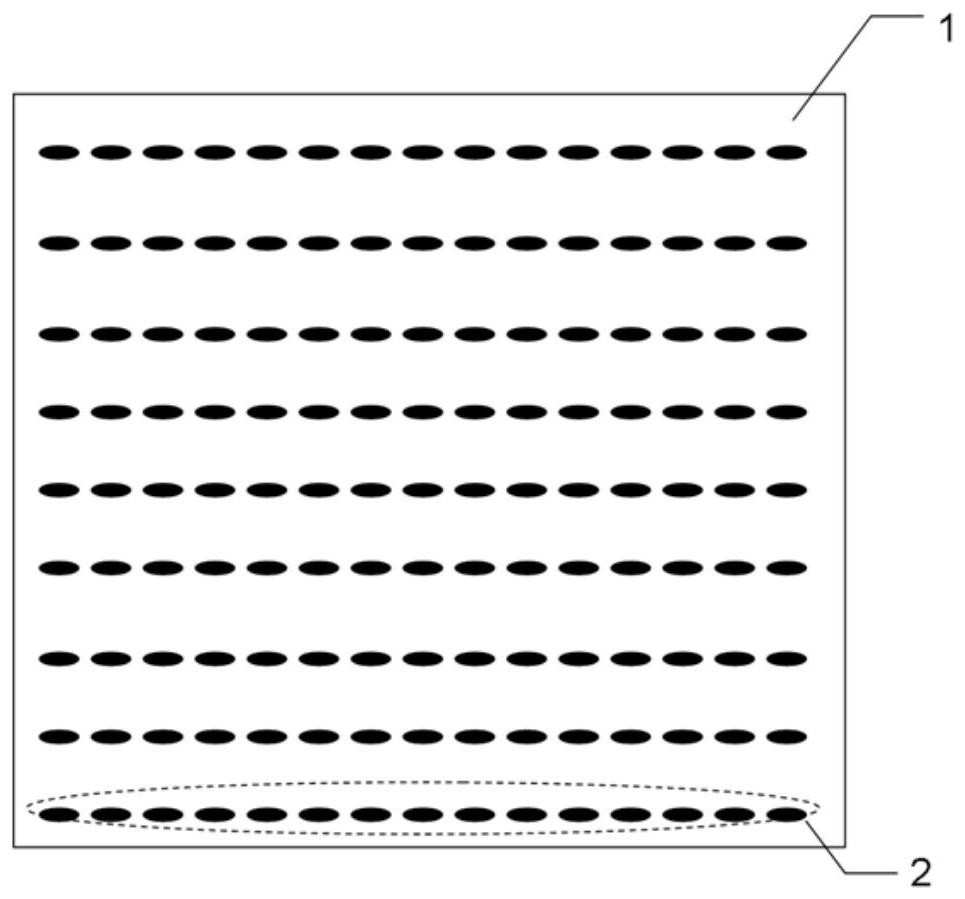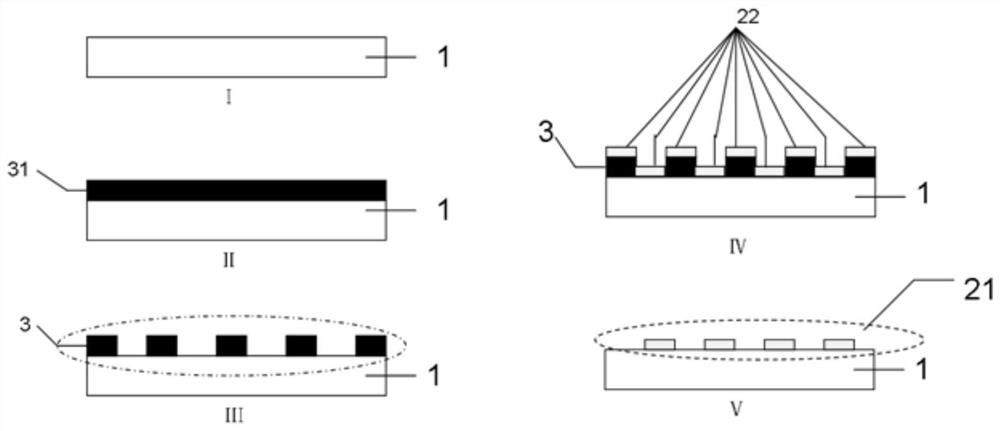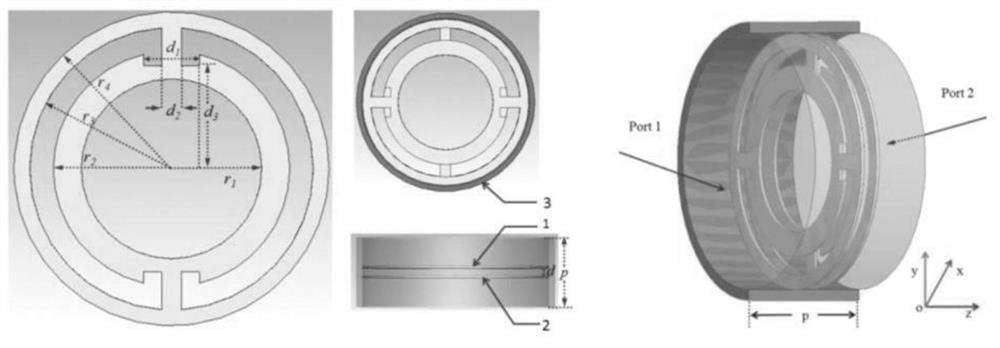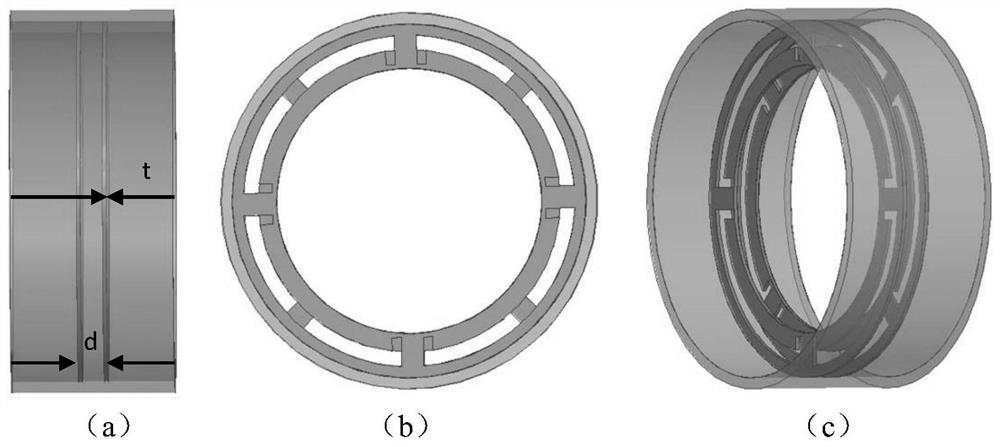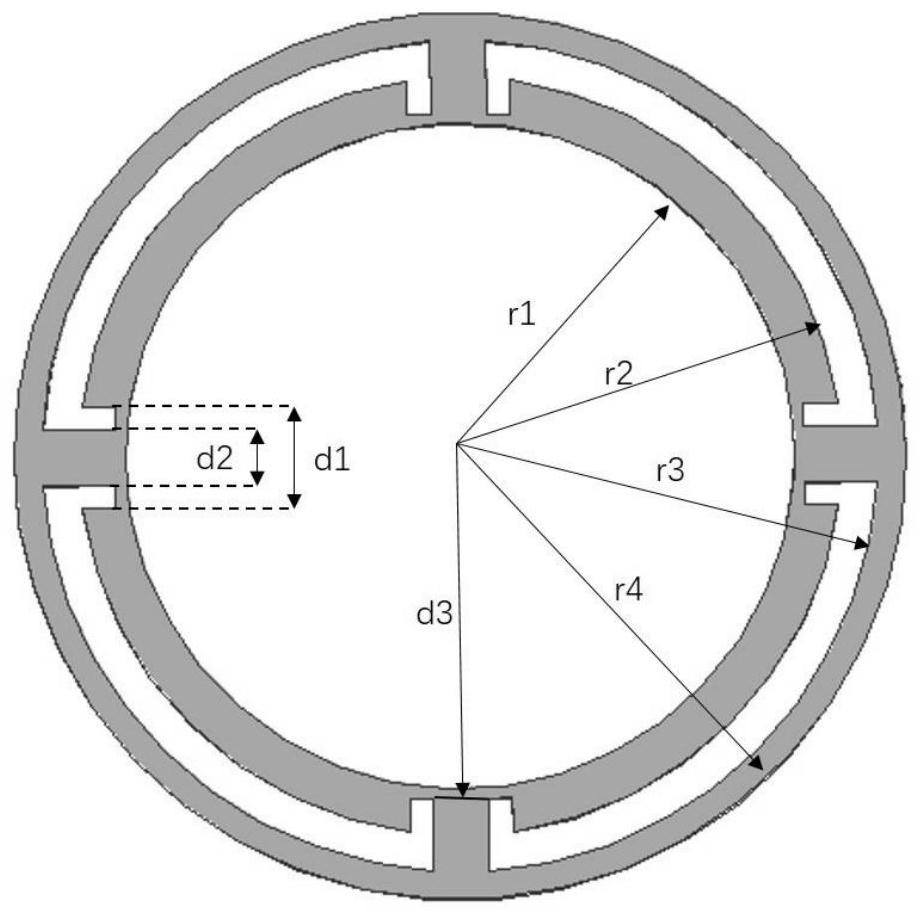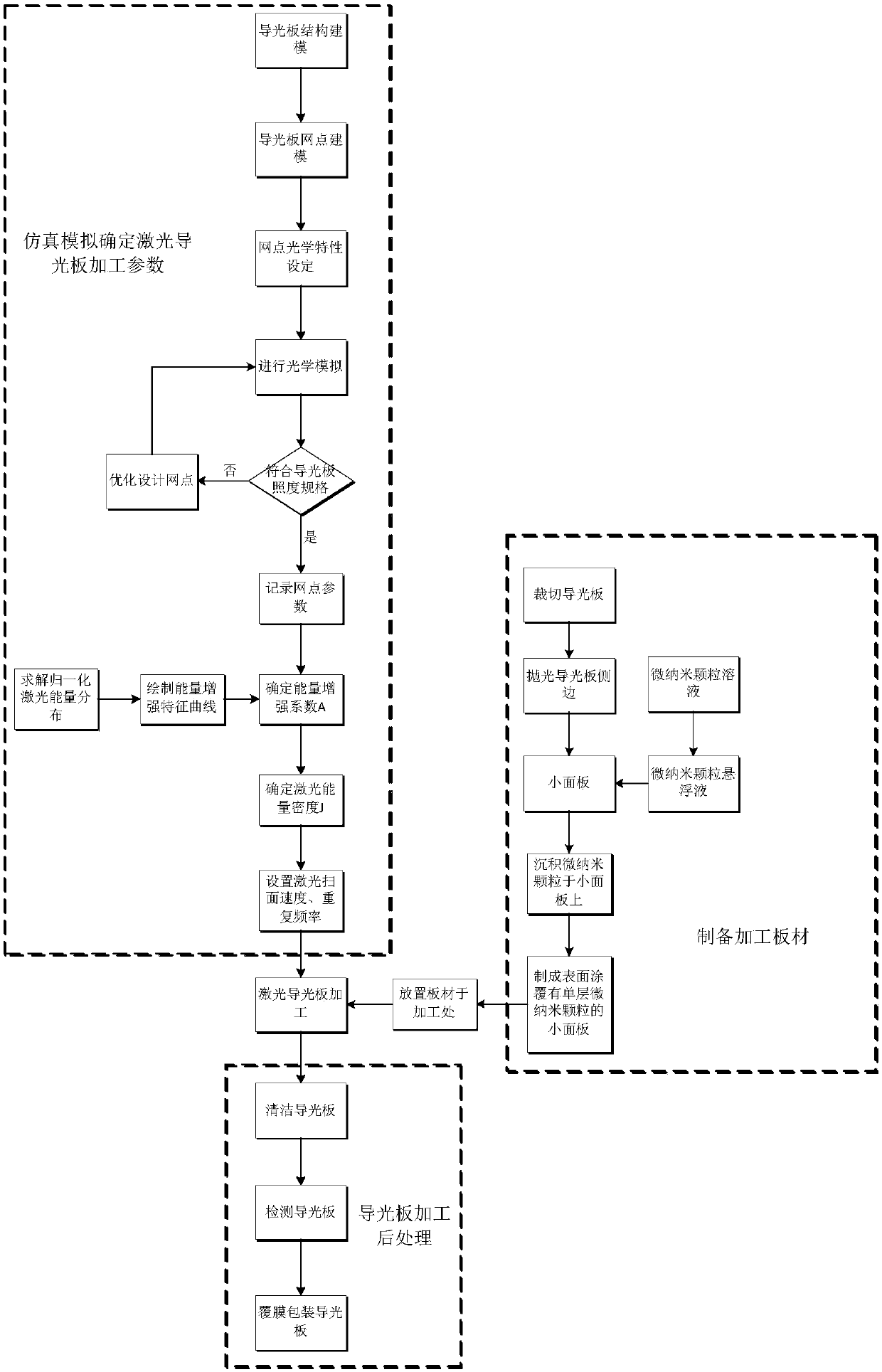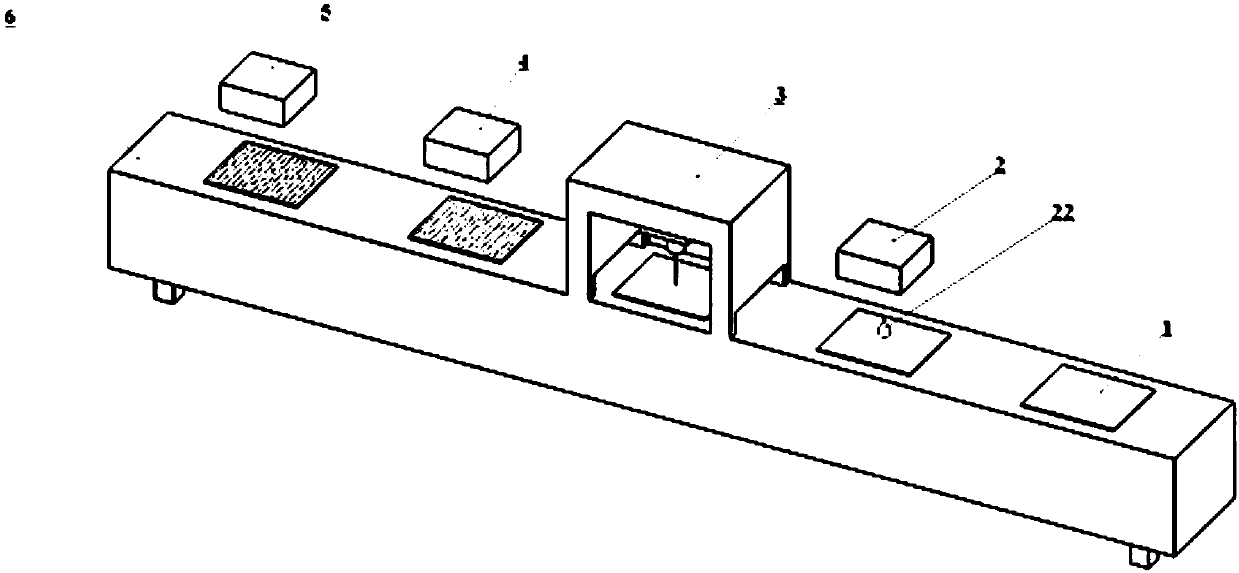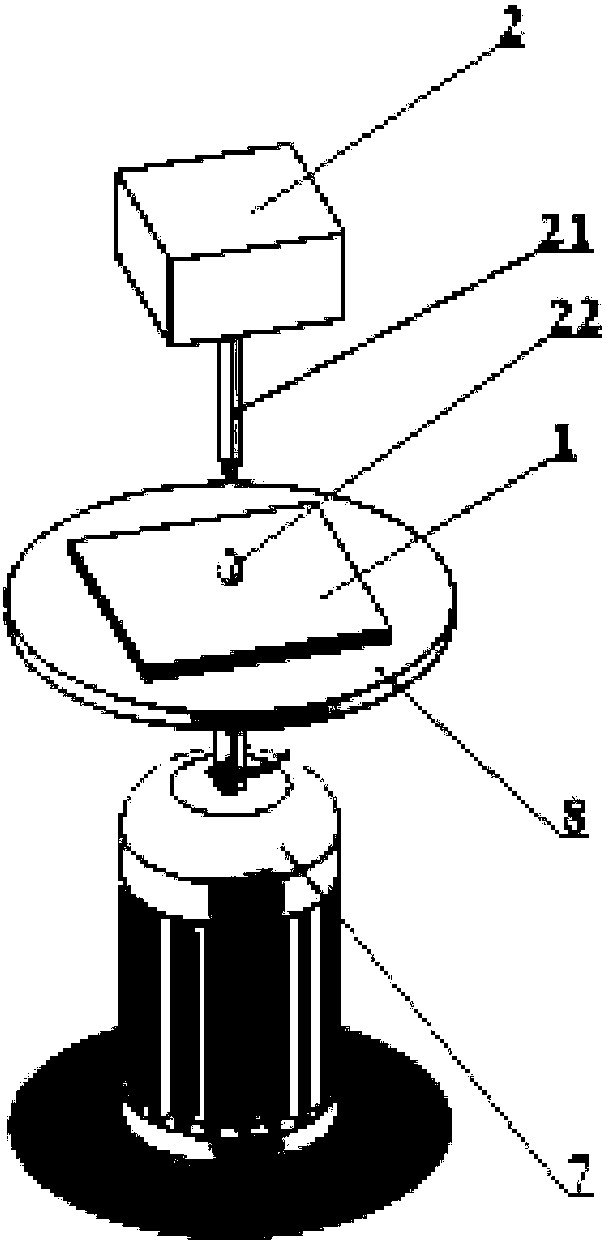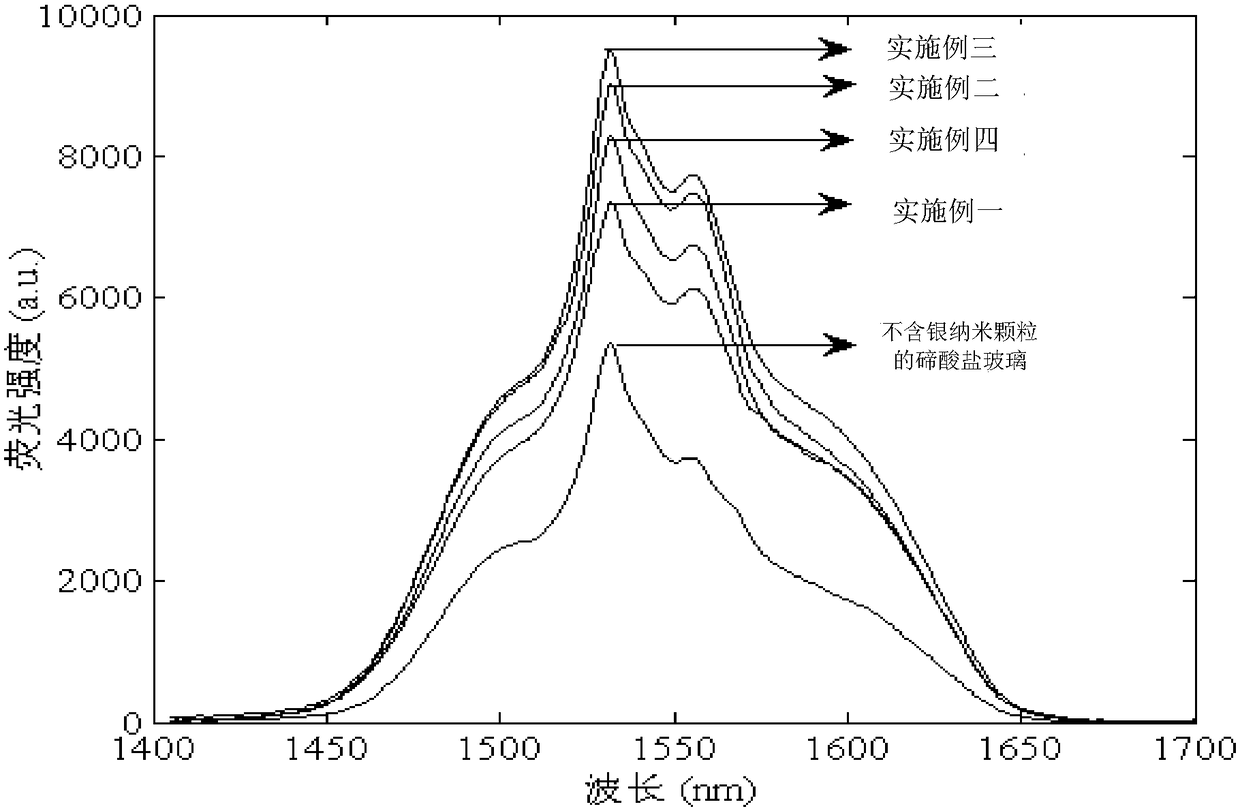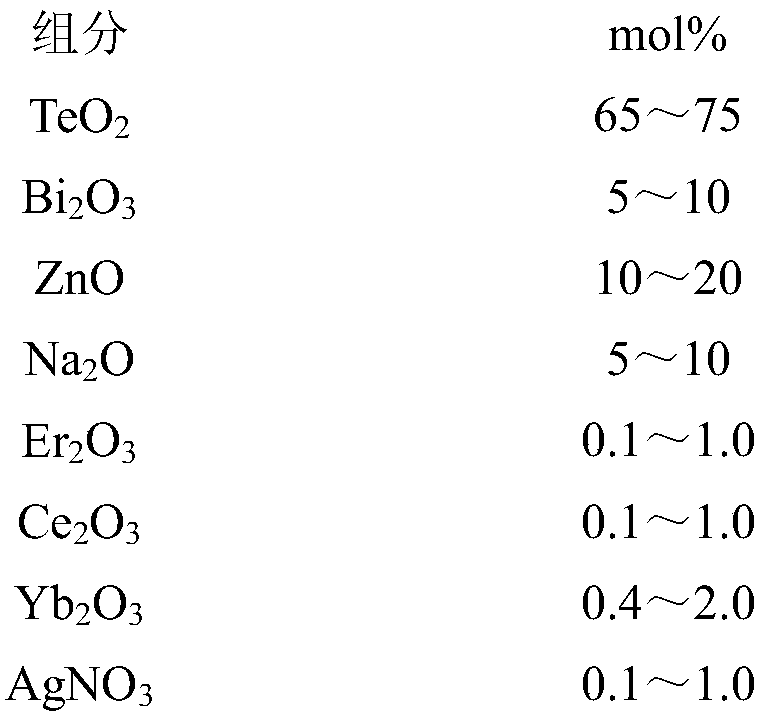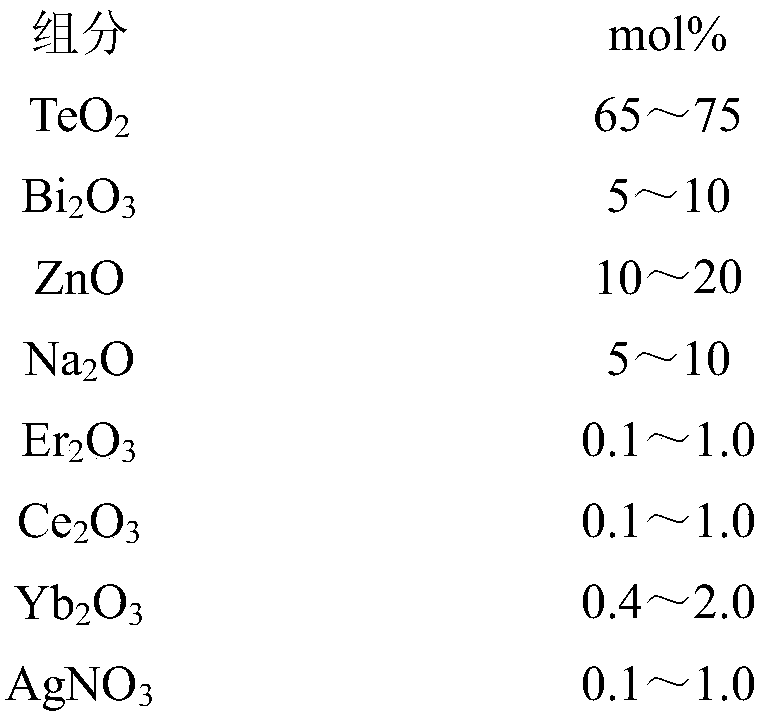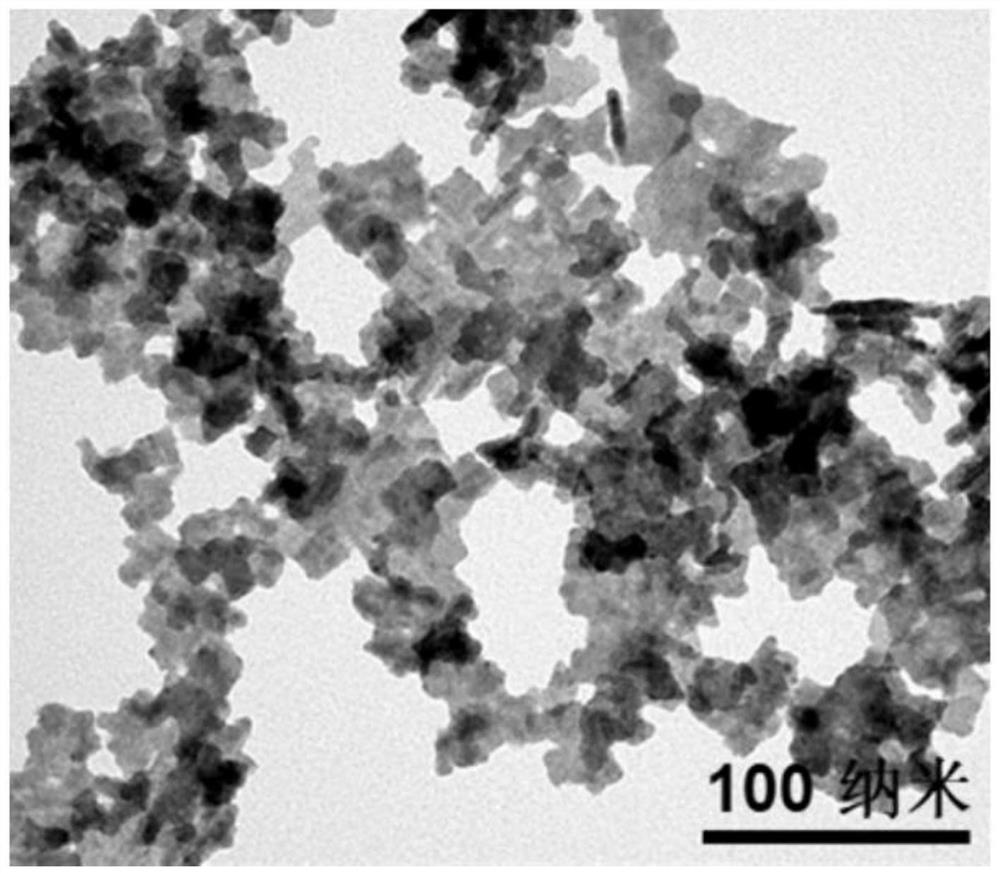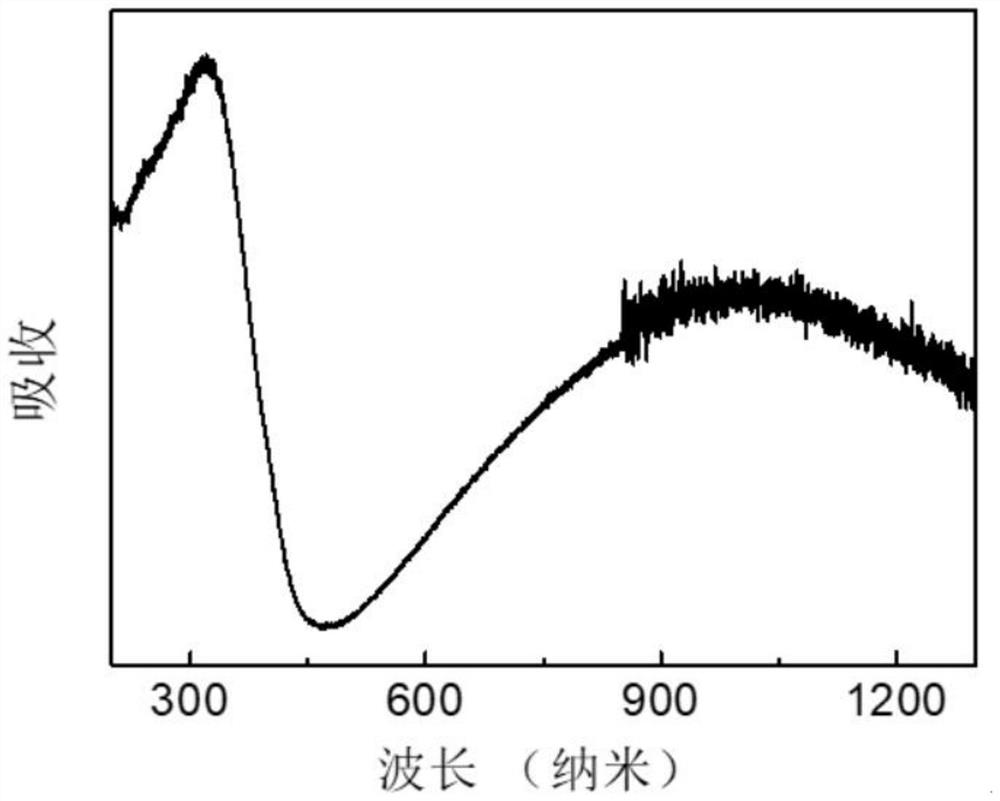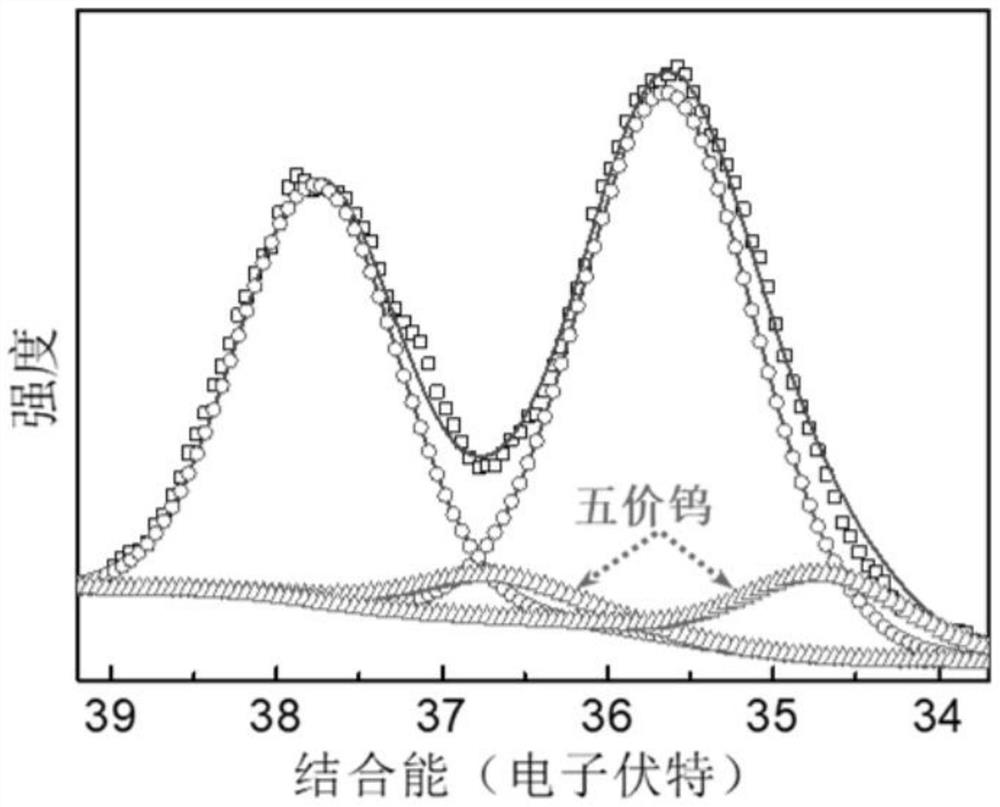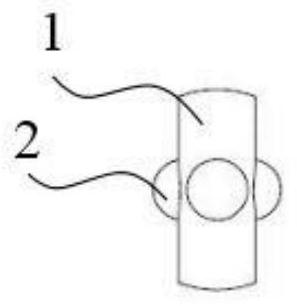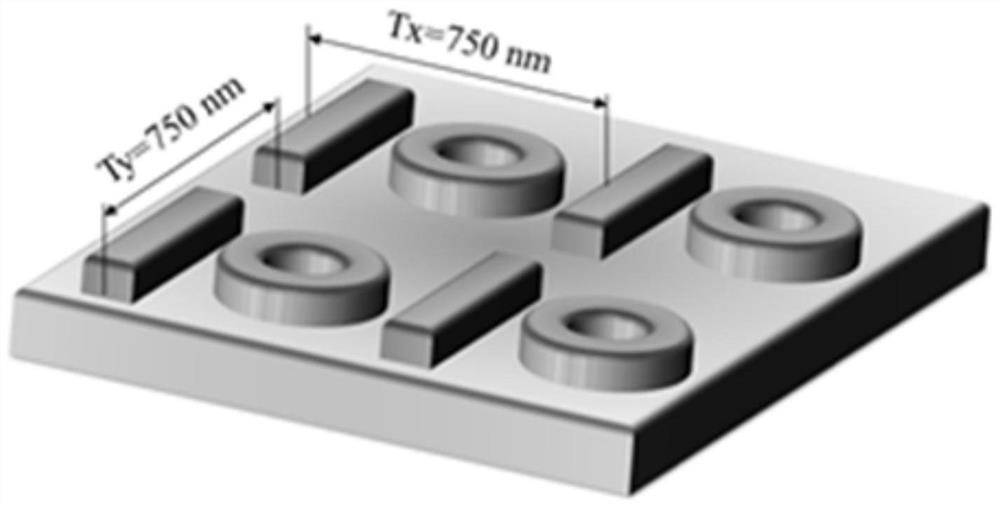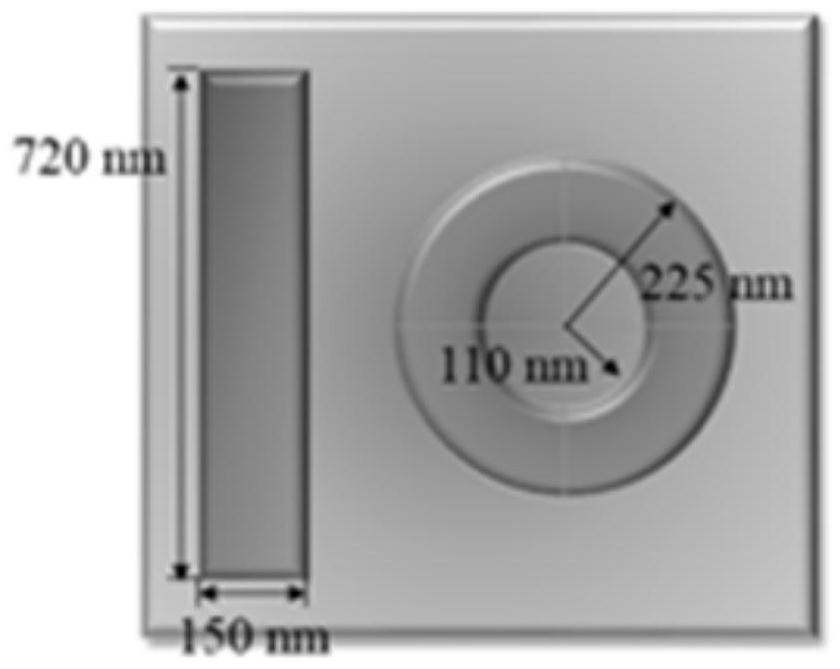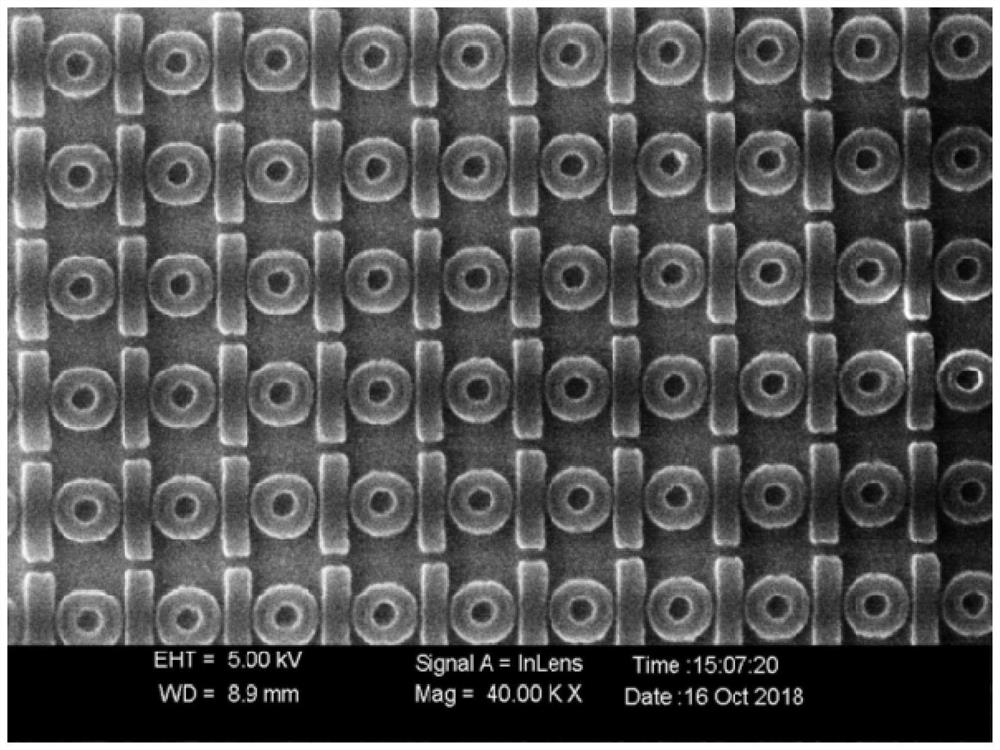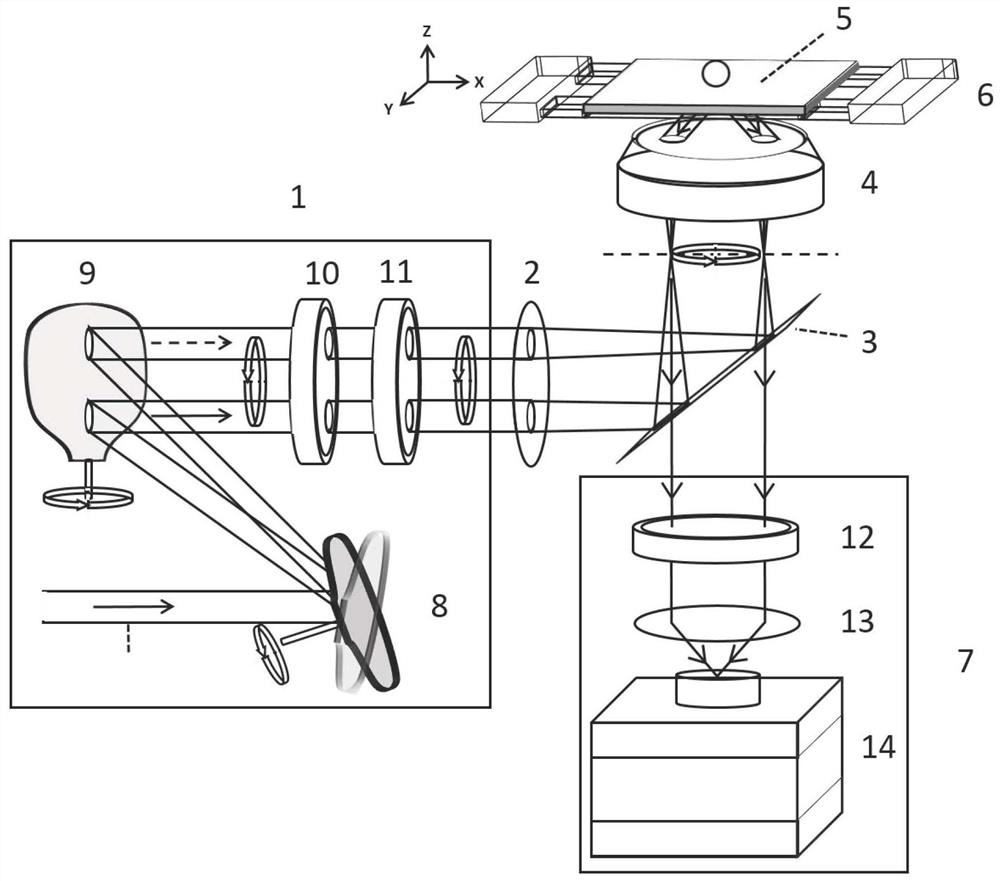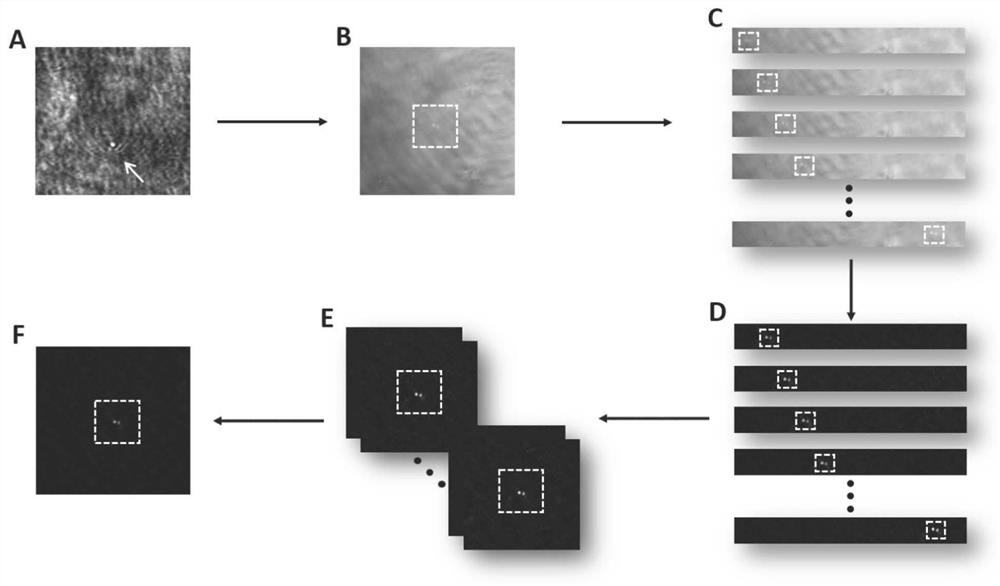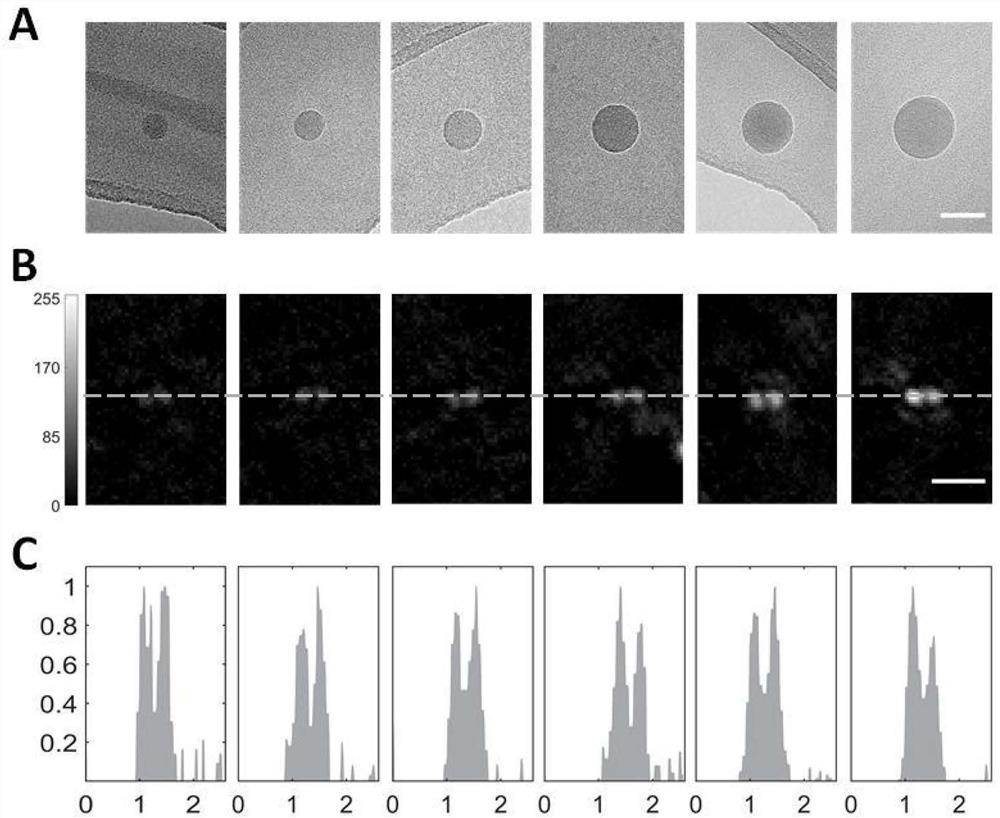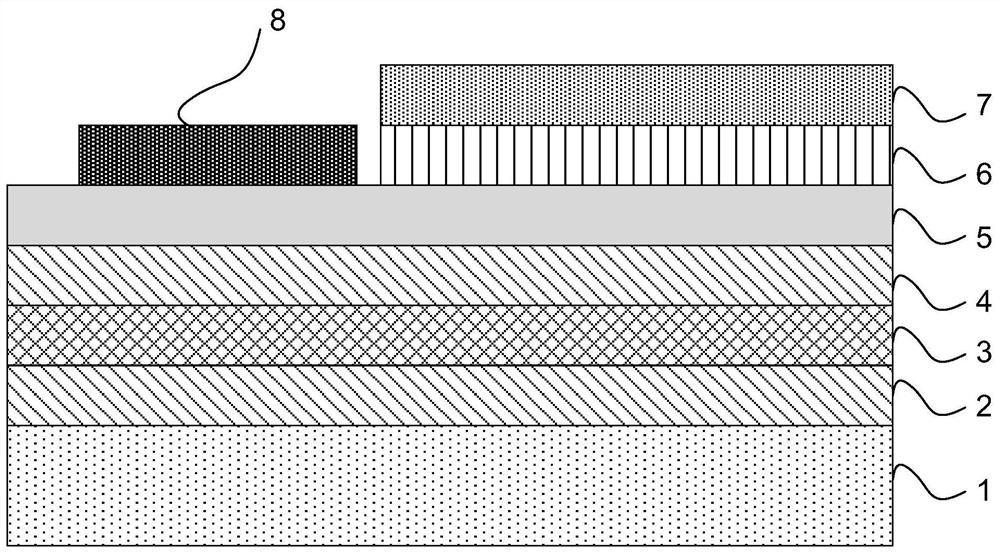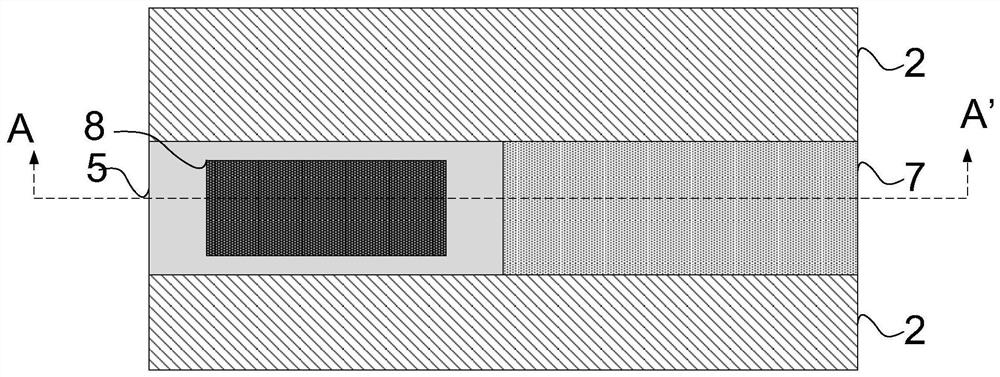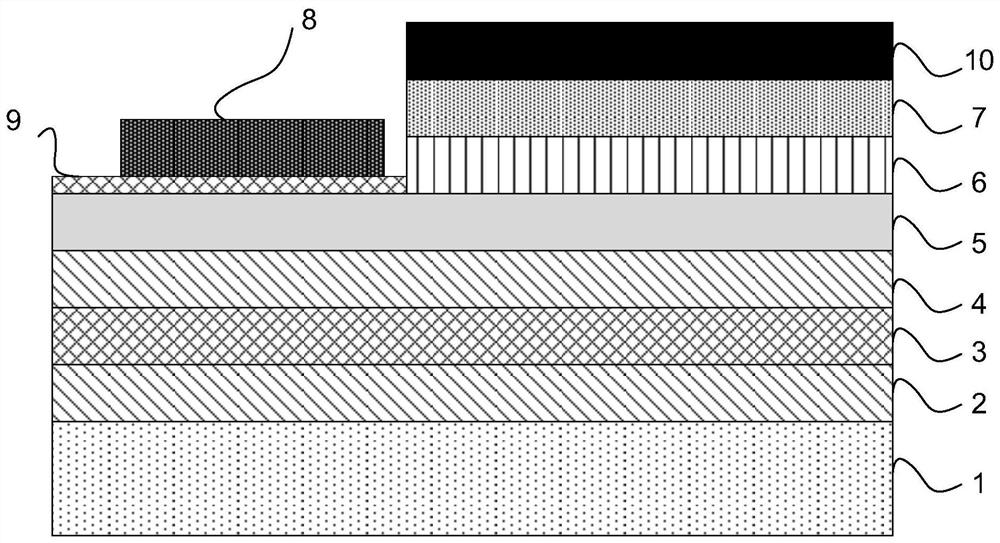Patents
Literature
Hiro is an intelligent assistant for R&D personnel, combined with Patent DNA, to facilitate innovative research.
38 results about "Local field enhancement" patented technology
Efficacy Topic
Property
Owner
Technical Advancement
Application Domain
Technology Topic
Technology Field Word
Patent Country/Region
Patent Type
Patent Status
Application Year
Inventor
Nanorice particles: hybrid plasmonic nanostructures
A new hybrid nanoparticle, i.e., a nanorice particle, which combines the intense local fields of nanorods with the highly tunable plasmon resonances of nanoshells, is described herein. This geometry possesses far greater structural tunability than previous nanoparticle geometries, along with much larger local field enhancements and far greater sensitivity as a surface plasmon resonance (SPR) nanosensor than presently known dielectric-conductive material nanostructures. In an embodiment, a nanoparticle comprises a prolate spheroid-shaped core having a first aspect ratio. The nanoparticle also comprises at least one conductive shell surrounding said prolate spheroid-shaped core. The nanoparticle has a surface plasmon resonance sensitivity of at least 600 nm RIU−1. Methods of making the disclosed nanorice particles are also described herein.
Owner:RICE UNIV
Nanorice particles: hybrid plasmonic nanostructures
InactiveUS20090032781A1Reduce conductive materialMaterial nanotechnologyConductive materialConductive materialsSurface plasmonic resonance
A new hybrid nanoparticle, i.e., a nanorice particle, which combines the intense local fields of nanorods with the highly tunable plasmon resonances of nanoshells, is described herein. This geometry possesses far greater structural tunability than previous nanoparticle geometries, along with much larger local field enhancements and far greater sensitivity as a surface plasmon resonance (SPR) nanosensor than presently known dielectric-conductive material nanostructures. In an embodiment, a nanoparticle comprises a prolate spheroid-shaped core having a first aspect ratio. The nanoparticle also comprises at least one conductive shell surrounding said prolate spheroid-shaped core. The nanoparticle has a surface plasmon resonance sensitivity of at least 600 nm RIU−1. Methods of making the disclosed nanorice particles are also described herein.
Owner:RICE UNIV
Rare earth doped glass frequency conversion luminous material and preparation method thereof
InactiveCN103666475AControl Particle SizeGood light transmissionLuminescent compositionsIon exchangeMaterials science
The invention discloses a rare earth doped glass frequency conversion luminous material and a preparation method thereof. The luminous material is formed by fluoride glass ceramics containing rare earth ions and silver nanoparticles. The preparation method comprises the steps of firstly preparing glass containing rare earth ions, secondly preparing the glass into the glass ceramics containing fluoride crystals through the heat treatment technology, and thirdly soaking the glass ceramics in a mixed salt melt containing silver nitrate to undergo ion exchange, thus obtaining the rare earth doped frequency conversion luminous material jointly enhanced by the silver nanoparticles and fluoride microcrystals. The obtained luminous material has the beneficial effects that the luminous material has good optical property and thermal stability; through irradiation of exciting light, by utilizing the local field enhancement effect of the silver nanoparticles, the rare earth ions in a low phonon energy environment created by the fluoride microcrystals achieve high frequency conversion luminous efficiency which can be maximally enhanced by 30 times, thus effectively making up for the problem of low rare earth ion doped glass frequency conversion luminous efficiency.
Owner:KUNMING UNIV OF SCI & TECH
Nanogold modified enhanced up-conversion luminescence composite material and preparation method thereof
InactiveCN102127444ASignificant economySignificant application valueLuminescent compositionsUpconversion luminescenceRare-earth element
The invention belongs to the field of up-conversion luminescence materials, in particular relates to a nanogold modified enhanced up-conversion luminescence composite material and a preparation method thereof. The nanogold modified enhanced up-conversion luminescence composite material is characterized in that nanogold particles and an up-conversion luminescence nanomaterial are combined and irradiated by exciting light to realize high up-conversion luminescence efficiency from a long wave region to a short wave region by utilizing the local field enhancement effect of the nanogold particles,and the luminescence efficiency can be up to 500 times at most, therefore, the defect of low luminescence efficiency of the up-conversion nanomaterial is effectively overcome. The nanogold modified enhanced up-conversion luminescence composite material has a general formula: AReF4: Ln<3+> / Au or DF2: Ln<3+> / Au, wherein A is a metal element, such as Na, Li, K, or the like, and D is a metal element of Ca, Ba, or the like; Re is one of rare earth elements comprising Y, Gd, Lu, and the like; and Ln<3+> is one of lanthanide doped ions comprising Yb<3+>, Tm<3+>, Er<3+>, Ho<3+>, Gd<3+>, Eu<3+>, and the like. The nanogold modified enhanced up-conversion luminescence composite material provided by the invention has remarkably improved up-conversion luminescence efficiency, is easy to detect and hassimple process equipment.
Owner:JILIN UNIV
Method and device for coaxial combined machining with tubular electrode discharging and laser irradiation
ActiveCN106424987AImprove processing efficiencyImprove processing localityStress concentrationMaterial defect
The invention provides a method and a device for coaxial combined machining with tubular electrode discharging and laser irradiation, and belongs to the field of non-traditional machining and combined machining. Micro-etching machining is performed on the surface of an insulating high-hardness brittle material by virtue of a coaxial action of cone-shaped tube electrode discharging and laser irradiation, recessive material defects and stress concentration generated by pulsed laser acting on the surface of a workpiece can attract spark discharge to always act on the current area, and meanwhile, the spark discharge changes the surface shape and physico-chemical property of the current area, then nonlinear absorption of the current area on laser energy is improved, a local field enhancement effect is generated, and pulsed laser focused irradiation can accelerate an electrochemical reaction to promote generation of a stable discharge gas film layer on the surface of a hollow tool electrode; and the interactive cooperation of two types of energy achieves fixed-area micro-etching of the insulating high-hardness brittle material, the machining efficiency is significantly improved, and the machining quality is improved.
Owner:JIANGSU UNIV
Meta material- microcavity composite structure and preparation method and use thereof
InactiveCN105093777AChange the effective refractive indexNonlinear Refractive Index EnhancementNon-linear opticsInter layerResonance
The invention discloses a meta material-microcavity composite structure and a preparation method and use thereof. The composite structure, from up to down, successively includes: a three-layer composite structure, from up to down, including meta materials, two-dimensional materials and optical microcavities, wherein the upper layer meta materials is provided with a plurality of resonance units arranged periodically. Pump lights incident into the meta materials to cause a change of a nonlinear refractive index of the two-dimensional materials, and a local field enhancement effect of the meta materials stimulated by the pump lights and a local field enhancement effect of the optical microcavities are together to improve the nonlinear refractive index of the two-dimensional materials to allow the effective refractive index around the meta materials to be changed, thereby a transmission state of that lights through composite structure is changed. According to the invention, the nonlinear refractive index of the materials is improved, the response time is reduced, and all-optical adjustability is enhanced. The production process is simple, available materials are wide, and the composite structure of the invention may be used for the all-optical switches or the sensors.
Owner:PEKING UNIV
Novel electroluminescent device and preparation method thereof
InactiveCN110137317AStrong local field enhancement effectAchieve tunableSemiconductor devicesIndiumLocal type
The invention discloses a novel electroluminescent device and a preparation method thereof and belongs to the field of semiconductor optoelectronic devices. The invention provides the electroluminescent device based on a metal nanostructure / zinc oxide microwire composite structure. The device includes a Ga-doped ZnO microwire, a metal nanostructure, an indium electrode and a quartz wafer. The Ga-doped ZnO microwires prepared in the present invention have a diameter ranging from 5 to 30 micrometers and a length of up to 2 cm, Ga is selected as an effective donor doping source, an electroluminescent light source with different Ga doping concentrations and a tunable light-emitting center wavelength in the range of 500 nm to 650 nanometers by changing the mass ratio of a reaction source. Thanks to a strong local field enhancement effect of the metal nanostructure, the surface modification of the metal nanostructure is performed on ZnO:Ga microwires by physical sputtering and spin coating methods, the control of the light-emitting center wavelength and light-emitting area of the microwires is achieved, and therefore, a local-type point light source and an array light source with alternately red and green are prepared.
Owner:NANJING UNIV OF AERONAUTICS & ASTRONAUTICS
Er<3+>/Ce<3+>/Yb<3+> tri-doped tellurate glass containing silver nano particles and preparation method thereof
The invention discloses Er<3+> / Ce<3+> / Yb<3+> tri-doped tellurate glass containing silver nano particles and a preparation method thereof. The glass consists of the following components in percentage by mole: 65-75mol% of TeO2, 5-10mol% of Bi2O3, 10-20mol% of ZnO, 5-10mol% of Na2O, 0.1-1.0mol% of Er2O3, 0.1-1.0mol% of Ce2O3, 0.4-2.0mol% of Yb2O3 and 0.1-1.0mol% of AgNO3. The tellurate glass has the following advantages that by adopting tellurium oxide as a main component and adding bismuth oxide, zinc oxide and sodium oxide, the forming ability and physical-chemical stability of the glass are improved; due to the tri-doping way of rare earth Er<3+>, Ce<3+> and Yb<3+> ions, the sensitization among the rare earth ions is sufficiently utilized to improve the luminous efficiency of the rare earth Er<3+> ions under a commercial 980nm-wavelength semiconductor laser diode pump; and the fluorescence emission intensity of the doping Er<3+> ions in the 1.55mu m near infrared waveband is enhanced by the local field enhancement effect of the silver nano particles.
Owner:NINGBO UNIV
Plasmon probe with tapered optical fibers combined with nanowires and working method of plasmon probe
ActiveCN111505342AReduce the impactIncrease the electromagnetic field densityScanning probe microscopyFiberNanowire
The invention discloses a plasmon probe with conical optical fibers combined with nanowires and a working method of the plasmon probe. The probe comprises a conical probe fiber core, a metal film covering layer, annular slit plasmon enhancement structures and nanowires, the metal film covering layer is uniformly distributed on the outer surface of the conical probe fiber core, the annular slit plasmon enhancement structures are etched on the metal film covering layer, and the nanowires grow or are assembled at the tip of the metal film covering layer. According to the invention, a plasmon enhancement structure is utilized, larger local field enhancement can be realized at a needle tip, higher resolution and signal detection sensitivity are achieved, and meanwhile, measurement of surface and high aspect ratio complex three-dimensional structure morphology and optical information can be realized in combination with a nanowire structure with a large length-diameter ratio. Wide applicationprospects are realized in the fields of nanometer limit processing, spectral analysis, super-resolution imaging and the like.
Owner:XI AN JIAOTONG UNIV
Nano-silver modified rare earth-doped frequency conversion luminescent material and preparation method thereof
InactiveCN103274607ASignificant economySignificant application valueRare earth ionsFrequency conversion
The invention provides a nano-silver modified rare earth-doped frequency conversion luminescent material and a preparation method thereof. The nano-silver modified rare earth-doped conversion luminescent material is composed of glass containing rare earth ions and a glassy film containing silver nanoparticles, wherein the glassy film containing the silver nanoparticles is uniformly coated on the surface of the glass containing the rare earth ions. The nano-silver modified rare earth-doped frequency conversion luminescent material is obtained by the steps of firstly preparing the glass containing the rare earth ions; then preparing the glassy film containing the silver nanoparticles; and coating the glassy film containing the silver nanoparticles on the surface of the glass containing the rare earth ions by a spin-coating method or a dip-coating method. The composite luminescent material has good optical performance and thermal stability. With irradiation of an excitation light, high frequency conversion luminous efficiency can be realized by using local field enhancement effect of the silver nanoparticles. The enhancement of the luminous efficiency can reach as high as 15 times, thereby effectively compensating the low luminous efficiency of frequency conversion glass materials.
Owner:KUNMING UNIV OF SCI & TECH
Nano-gold modified rare earth-doped frequency conversion luminescent material and preparation method thereof
The invention provides a nano-gold modified rare earth-doped frequency conversion luminescent material and a preparation method thereof. The nano-gold modified rare earth-doped modified frequency conversion luminescent material is composed of glass containing rare earth ions and a glassy film containing gold nanoparticles, wherein the glassy film containing the gold nanoparticles is uniformly coated on the surface of the glass containing the rare earth ions. The nano-gold modified rare earth-doped frequency conversion luminescent material is obtained by the steps of firstly preparing the glass containing the rare earth ions; then preparing the glassy film containing the gold nanoparticles; and coating the glassy film containing the gold nanoparticles on the surface of the glass containing the rare earth ions by a spin-coating method or a dip-coating method. The composite luminescent material has good optical performance and thermal stability. With irradiation of an excitation light, high frequency conversion luminous efficiency can be realized by using local field enhancement effect of the gold nanoparticles. The luminous efficiency can be enhanced by as high as 10 times, thereby effectively compensating the low luminous efficiency of frequency conversion glass materials.
Owner:KUNMING UNIV OF SCI & TECH
Dual-butterfly-shaped silver nano optical antenna
InactiveCN104953269AStrong electric field enhancement effectIncrease the normalized electric field strengthRadiating elements structural formsTime domainLocal field enhancement
The invention discloses a dual-butterfly-shaped silver nano optical antenna. The antenna comprises four antenna arms arranged on the upper surface of a substrate, wherein the substrate comprises a glass medium, the antenna arms adopt identical triangular structures respectively and are pairwise symmetrically arranged into dual butterfly shapes, the length of each antenna arm ranges from 50 nm to 100 nm, and the angle formed by every two adjacent antenna arms ranges from 15 degrees to 85 degrees. Effects caused by different parameters, such as the included angles formed by the antenna arms, the length of the antenna arms and different incident light polarization directions, of the dual-butterfly-shaped silver nano optical antenna on near-field electric field distribution and near-field enhancement characteristics are analyzed on the basis of an FDTD (finite difference time domain) algorithm and a localized surface plasmon theory, so that the metal nano optical antenna which works at the optical frequency band, has the higher local field enhancement and has certain stability to the incident light polarization directions is designed.
Owner:TIANJIN UNIV
Metal V-shaped grating Fano resonance structure with adjustable tip spacing
ActiveCN109001179AHigh field enhancement effectImprove responsivenessRaman scatteringOptical elementsGratingElastic substrate
The invention relates to a metal V-shaped grating Fano resonance structure with an adjustable tip spacing. The resonance structure comprises a layer of transparent elastic substrate and a metal V-shaped grating. The nanoscale spacing of structure tips is realized by bending the elastic substrate, so that local field enhancement factors near the tips are greatly enhanced. The adjustable characteristic of the tip spacing ensures the reliability of the tip spacing in a preparation process, so that high sensitivity and high accuracy of detection are effectively guaranteed. A main local area of a resonance light field of the structure is located at the tips of slits, and a field enhancement range is also extended to a line from a point of a traditional nano-particle pair. A preparation method of the resonance structure is based on anisotropic etching of silicon and a stripping technology of a metal film; the process is simple and convenient; the reliability is high; the repeatability is good; and the application is convenient.
Owner:SOUTHEAST UNIV
Metal nano optical antenna monolithically integrated on photoelectric detector
PendingCN108445563AHigh light transmittanceCompact structureOptical light guidesQuantum efficiencyPhotovoltaic detectors
The present invention discloses a metal nano optical antenna monolithically integrated on a photoelectric detector. The antenna comprises a covering layer with a low refractive index, a metal nano sphere array and a detector substrate in order from top to bottom. The low refractive index of the covering layer with the low refractive index is in a range of 1.3-2.3, the diameter of each metal nano sphere is 300-500 nanometers, and an arrangement cycle is 700-900 nanometers. The metal nano optical antenna structure can improve the optical absorption properties of the detector, can enhance the response of the detector to an incident light and can improve quantum efficiency through light scattering and surface local field enhancement effect, the preparation process is simple, and the preparation cost is low.
Owner:SHANGHAI INST OF TECHNICAL PHYSICS - CHINESE ACAD OF SCI
A metamaterial-microcavity composite structure and its preparation method and application
InactiveCN105093777BChange the effective refractive indexNonlinear Refractive Index EnhancementNon-linear opticsResonanceLocal field enhancement
The invention discloses a meta material-microcavity composite structure and a preparation method and use thereof. The composite structure, from up to down, successively includes: a three-layer composite structure, from up to down, including meta materials, two-dimensional materials and optical microcavities, wherein the upper layer meta materials is provided with a plurality of resonance units arranged periodically. Pump lights incident into the meta materials to cause a change of a nonlinear refractive index of the two-dimensional materials, and a local field enhancement effect of the meta materials stimulated by the pump lights and a local field enhancement effect of the optical microcavities are together to improve the nonlinear refractive index of the two-dimensional materials to allow the effective refractive index around the meta materials to be changed, thereby a transmission state of that lights through composite structure is changed. According to the invention, the nonlinear refractive index of the materials is improved, the response time is reduced, and all-optical adjustability is enhanced. The production process is simple, available materials are wide, and the composite structure of the invention may be used for the all-optical switches or the sensors.
Owner:PEKING UNIV
Preparation method and application of nanostar chain-shaped nanostructure arrays
PendingCN112775434AEnhance photoelectric effectEnhancement effect is goodMaterial nanotechnologyTransportation and packagingEtchingNanoparticle
The invention relates to a preparation method and application of nanostar chain-shaped nanostructure arrays, The preparation method comprises the following steps: (1) wet etching is carried out on the surface of a substrate material to obtain a photoresist layer with a micro-nano structure array pattern, and the micro-nano structure array pattern is composed of a plurality of two-dimensional strip-shaped hollow unit structures; and (2) nano-star particle sol is repeatedly dispensed on the surface of the substrate material with the photoresist layer and naturally dried, gold nano-star particles are deposited in the hollow unit structures, and finally the multiple nano-star chain-shaped nano-structure arrays are obtained on the surface of the substrate material after the photoresist is removed. According to the preparation method, discrete nano-materials in the prior art can be constructed into nano-chains with nanoscale, so that the distance between nano-particles reaches nanoscale, the distance between nano-chains also has nanoscale, the nano-chains can be applied to a surface-enhanced Raman scattering substrate, the local field enhancement effect is improved, and the gold nanostar chain-shaped nanostructure arrays have a better photoelectric effect.
Owner:JIANGSU UNIV OF TECH
Medium nanometer light wave antenna sensor based on rod-ring structure and application
InactiveCN110389110ARealize high-precision detectionStrong absorption capacityPhase-affecting property measurementsProtein moleculesResonance wavelength
The invention discloses a medium nanometer light wave antenna sensor based on a rod-ring structure; a material mainly containing silicon dioxide is used as a substrate; a silicon layer of the rod-ringstructure arranged in a periodic array mode is arranged on the substrate, and for incident light with the wavelength ranging from 600 nanometers to 2500 nanometers, peaks can be obtained in transmission / reflection spectral lines. By utilizing the polaron resonance characteristics that the medium material can be polarized under irradiation of incident light and generate an internal displacement current, the change of an environment refractive index can be indirectly detected, and then water pollutants can be detected. Due to a low-loss characteristic, damage to sensing marker molecules due toa strong light heat effect can be avoided while large local field enhancement is obtained, and composition and concentration of to-be-detected protein molecules can be reversely deduced according to resonance wavelength obtained through detection through early calibration and later comparison.
Owner:ZHEJIANG UNIV
A precise laser polishing device and method thereof
The invention provides a precise laser polishing device and a method thereof. According to the method, a glass pane coated with micro-nano particles is attached to the surface of a work-piece to be polished, the micro-nano particles are located between the glass pane and the work-piece to be polished, a pulsed laser device emits pulse lasers, focused pulse light beams radiate the glass pane coated with the micro-nano particles, the micro-nano particles serve as a focusing lens, energy around the micro-nano particles is enhanced after the lasers are focused by the micro-nano particles, the surface of the work-piece to be polished protrudes or the tip part of the work-piece to be polished gets fused, and therefore the polishing effect is realized. According to the precise laser polishing device and the method thereof, the pulse lasers converge and act on the surface of material through the micro-nano particles, and the laser polishing technology within the micro-nano scale range is realized through the local field enhancement effect of the micro-nano particles. The polishing device is convenient to construct, simple and practicable; for work-pieces with complex shapes and appearances to be polished, the polishing effect is still good through the method.
Owner:JIANGSU UNIV
Preparation method and application of nano-chain structure array
PendingCN112795870AEasy to useExpansion of Industrialization ProspectsVacuum evaporation coatingSputtering coatingEtchingNanoparticle
The invention relates to a preparation method and application of a nano-chain structure array. The preparation method comprises the following steps: (1) carrying out wet etching on the surface of a substrate to obtain a photoresist layer with a strip-shaped hollow structure array; (2) depositing on the substrate with the photoresist layer to obtain a gold nano-film, and then stripping the photoresist layer to obtain a strip-shaped hollow gold nano-array on the surface of the substrate; and (3) carrying out annealing treatment, and finally preparing the nano-chain structure array formed by taking gold nanoparticles as basic units on the substrate, wherein nano-chains are parallel to one another and the distance between the nano-chains is 200 nm-1000 nm, the basic unit of each nano-chain is the gold nanoparticles, and the distance between the gold nanoparticles is 2 nm-10 nm. The method provided by the invention is low in production cost and is suitable for large-scale production; and the nano-chain structure array provided by the invention is applied to a surface enhanced Raman scattering substrate, so that the surface plasmon polariton effect can be improved and the local field enhancement effect is improved.
Owner:JIANGSU UNIV OF TECH
Metamaterial-based low-frequency-band slow wave structure
ActiveCN112820608AHas the advantage of horizontal miniaturizationLong slow wave structure periodTransit-tube circuit elementsWave structureLow frequency band
The invention relates to a microwave source device in the field of high-power microwaves, in particular to a metamaterial-based low-frequency-band slow wave structure which comprises a first metamaterial resonance unit, a second metamaterial resonance unit and a circular waveguide. The first metamaterial resonance unit and the second metamaterial resonance unit are in 45-degree rotation coupling arrangement to form a single period of the slow wave structure. The metamaterial-based low-frequency-band slow wave structurehas the following technical advantages that the metamaterial-basedslow wave structure can work below the cut-off frequency of the hollow metal circular waveguides with the same size, and has the advantage of transverse miniaturization; due to the sub-wavelength characteristic of the metamaterial, the slow wave structure is shorter in period and has the advantage of miniaturization in the axial direction; due to the local field enhancement effect of the metamaterial-based slow-wave structure, the slow-wave structure has higher coupling impedance, and a device has the advantage of higher beam-wave interaction efficiency; strong electromagnetic coupling between metamaterial slow wave structures is stronger in relativistic electron beam modulation, so that the device has shorter oscillation starting time.
Owner:NAT UNIV OF DEFENSE TECH
A high-uniformity laser light guide plate processing method and device
ActiveCN106166649BAvoid lostEfficient conversionWelding/soldering/cutting articlesMetal working apparatusLaser lightOptoelectronics
The invention belongs to the technical field of laser processing and provides a high-uniformity laser guide plate processing method and device. The method comprises the steps that a small panel to be processed is put under a laser device, and when a laser beam radiates the surface of the small panel to be processed, a local field enhancement effect is generated on the peripheries of micro / nano-particles to make nanopores generated in the contact parts of the micro / nano-particles and the small panel to be processed, wherein the surface of the small panel to be processed is coated with the single layer of micro / nano-particles; then, the surface of the small panel to be processed is cleaned and dried through a cleaning device and a drying device respectively; finally, a uniformly-distributed nanopore array can be formed on the surface of the small panel to be processed. The high-uniformity laser guide plate processing method and device have the advantages that a laser source is efficiently converted into the area beam, and a scattering beam is uniform and gentle. The processing device comprises a rotary coating device, the laser device, the cleaning device, the drying device and a laser guide plate processing platform; a micro / nano-particle suspension storage device, the laser device, the cleaning device and the drying device are arranged on the laser guide plate processing platform from right to left in sequence.
Owner:江苏大学扬州(江都)新能源汽车产业研究所
Nano-gold modified rare earth-doped luminescent material for frequency conversion and preparation method thereof
InactiveCN103274606BGood optical performanceImprove thermal stabilityLight irradiationOptical property
The invention provides a nano-gold modified rare earth-doped luminescent material for frequency conversion and a preparation method thereof, which is composed of glass containing rare earth ions and a vitreous film containing nano-gold particles, and the vitreous film containing nano-gold particles is uniformly coated on the on glass surfaces containing rare earth ions. First prepare the glass containing rare earth ions, then prepare the vitreous film containing nano-gold particles, and then coat the glassy film containing nano-gold particles on the surface of the glass containing rare earth ions by rotating speed spin coating or dipping and pulling , to obtain nano-gold modified rare earth-doped luminescent material for frequency conversion. The obtained composite luminescent material has good optical properties and thermal stability. The present invention realizes high frequency conversion luminous efficiency by utilizing the local field enhancement effect of nano-gold particles through excitation light irradiation, and its luminous efficiency can be enhanced up to 10 times. The problem of low luminous efficiency of the frequency conversion glass material is effectively made up for.
Owner:KUNMING UNIV OF SCI & TECH
Coaxial compound processing method and device for tube electrode discharge and laser irradiation
ActiveCN106424987BImprove processing efficiencyImprove processing localityMaterial defectElectrochemical response
Owner:JIANGSU UNIV
A kind of er3+/ce3+/yb3+ triple-doped tellurate glass containing silver nanoparticles and its preparation method
The invention discloses Er<3+> / Ce<3+> / Yb<3+> tri-doped tellurate glass containing silver nano particles and a preparation method thereof. The glass consists of the following components in percentage by mole: 65-75mol% of TeO2, 5-10mol% of Bi2O3, 10-20mol% of ZnO, 5-10mol% of Na2O, 0.1-1.0mol% of Er2O3, 0.1-1.0mol% of Ce2O3, 0.4-2.0mol% of Yb2O3 and 0.1-1.0mol% of AgNO3. The tellurate glass has the following advantages that by adopting tellurium oxide as a main component and adding bismuth oxide, zinc oxide and sodium oxide, the forming ability and physical-chemical stability of the glass are improved; due to the tri-doping way of rare earth Er<3+>, Ce<3+> and Yb<3+> ions, the sensitization among the rare earth ions is sufficiently utilized to improve the luminous efficiency of the rare earth Er<3+> ions under a commercial 980nm-wavelength semiconductor laser diode pump; and the fluorescence emission intensity of the doping Er<3+> ions in the 1.55mu m near infrared waveband is enhanced by the local field enhancement effect of the silver nano particles.
Owner:NINGBO UNIV
Nano-silver modified rare earth-doped luminescent material for frequency conversion and preparation method thereof
The invention provides a nano-silver modified rare earth-doped luminescent material for frequency conversion and a preparation method thereof, which is composed of glass containing rare earth ions and a vitreous film containing nano-silver particles, and the vitreous film containing nano-silver particles is uniformly coated on on glass surfaces containing rare earth ions. First prepare the glass containing rare earth ions, then prepare the vitreous film containing nano-silver particles, and then coat the vitreous film containing nano-silver particles on the surface of the glass containing rare earth ions by rotating speed spin coating or dipping and pulling , to obtain nano-silver modified rare-earth-doped luminescent material for frequency conversion. The obtained composite luminescent material has good optical properties and thermal stability. The present invention realizes high frequency conversion luminous efficiency by utilizing the local field enhancement effect of nano-silver particles through excitation light irradiation, and its luminous efficiency can be enhanced up to 15 times. The problem of low luminous efficiency of the frequency conversion glass material is effectively made up for.
Owner:KUNMING UNIV OF SCI & TECH
Semiconductor nanomaterial for regulating and controlling up-conversion luminescence through surface plasma resonance as well as preparation method and application of semiconductor nanomaterial
PendingCN114686221AIncrease the concentration of free electronsEnhanced fluorescence selectivityLuminescent compositionsOxygen vacancyTungstate
The invention belongs to the technical field of up-conversion luminescent materials, and particularly relates to a semiconductor nanomaterial for regulating up-conversion luminescence through surface plasma resonance as well as a preparation method and application of the semiconductor nanomaterial. The semiconductor nanomaterial is prepared through a hydrothermal method by taking ethanol as a reducing agent in a nitric acid acidification environment, the semiconductor nanomaterial is oxygen vacancy doped surface plasma bismuth tungstate, the size is 10-100 nm, oxygen vacancy doping can effectively improve the concentration of free electrons, and the oxygen vacancy doped surface plasma bismuth tungstate can effectively improve the concentration of the free electrons. And wide-spectrum significant surface plasma resonance is generated in a visible-near infrared region (the wavelength is 600-1300 nm). The fluorescence selectivity of the rare earth up-conversion nanoparticles can be enhanced by three orders of magnitude by utilizing the synergistic effect of local field enhancement and photothermal effect of bismuth tungstate surface plasma resonance.
Owner:JINAN UNIVERSITY
Electrode and ablation equipment
PendingCN111772782AIncrease the working distanceIncreased breakdown probabilitySurgical instruments for heatingVoltage amplitudeMedicine
The invention provides an electrode. The electrode comprises an electrode main body and an electrode front end, the electrode main body is a cylinder, micro convex parts are arranged on the electrodemain body, and the micro convex parts protrude out of the outer surface of the electrode main body; a plurality of micro convex parts are arranged at intervals along the axial direction of the electrode main body; and the front end of the electrode extends along the axis of the electrode main body, and the front end of the electrode is conical. The invention further provides ablation equipment. According to the electrode and the ablation equipment provided by the invention, the micro-convex structure is additionally arranged on the electrode main body with a smooth surface, and local high field intensity is formed on the micro-convex structure by utilizing the skin effect of high-frequency current; under the same electrode spacing, a discharge channel can be quickly established through local field enhancement, the cell breakdown probability is increased, and the requirement on external voltage amplitude is reduced; and under the same voltage level, the local field intensity can effectively increase the action distance between electrodes, and the actual application range is enlarged.
Owner:湖南菁益医疗科技有限公司
A Dielectric Nano Lightwave Antenna Sensor Based on Rod-Ring Structure and Its Application
InactiveCN110389110BStrong absorption capacityAvoid destructionPhase-affecting property measurementsProtein moleculesResonance wavelength
The invention discloses a medium nanometer light wave antenna sensor based on a rod-ring structure; a material mainly containing silicon dioxide is used as a substrate; a silicon layer of the rod-ringstructure arranged in a periodic array mode is arranged on the substrate, and for incident light with the wavelength ranging from 600 nanometers to 2500 nanometers, peaks can be obtained in transmission / reflection spectral lines. By utilizing the polaron resonance characteristics that the medium material can be polarized under irradiation of incident light and generate an internal displacement current, the change of an environment refractive index can be indirectly detected, and then water pollutants can be detected. Due to a low-loss characteristic, damage to sensing marker molecules due toa strong light heat effect can be avoided while large local field enhancement is obtained, and composition and concentration of to-be-detected protein molecules can be reversely deduced according to resonance wavelength obtained through detection through early calibration and later comparison.
Owner:ZHEJIANG UNIV
Surface plasmon imaging system based on differential denoising
InactiveCN113466090AImprove signal-to-noise ratioNanoparticle analysisParticle size analysisMicro imagingBeam splitter
The invention discloses a surface plasmon imaging system based on differential denoising. The surface plasmon imaging system comprises a rotary illumination system, a tube mirror, a beam splitter, an oil immersion microscope objective, a gold film substrate, a high-precision displacement platform and an imaging light path, and a surface plasmon has the characteristics of local field enhancement and sensitivity to environment refractive index change, and can be used for imaging small particles. The system comprises the following steps: firstly, performing rotary illumination on an object by using incident light by using a rotary illumination system, eliminating interference fringes generated by the incident light and scattered light, and obtaining an image without the interference fringes and with a smaller size; and on the basis, using a differential denoising method to quickly move a high-precision displacement platform, so that the background noise of the image is removed, and the signal-to-noise ratio of imaging is improved. According to the imaging system, the signal-to-noise ratio of surface plasmon microimaging is greatly improved by using a differential denoising method, high-contrast imaging can be carried out on nanoparticles with the diameter as low as 22 nm, and the particle size resolution is 10 nm.
Owner:UNIV OF SCI & TECH OF CHINA
Uni-traveling carrier photoelectric detector and manufacturing method thereof
ActiveCN111682078AReduced carrier transit timeReduced transit timePhotovoltaic energy generationSemiconductor devicesPhotovoltaic detectorsResponsivity
The invention provides a uni-traveling carrier photoelectric detector and a manufacturing method thereof. According to the invention, by introducing a surface plasmon structure near an absorption layer, the absorption of the absorption layer is increased by utilizing the characteristics of local field enhancement, near-field enhancement and scattering in transmission and the like to improve the photoelectric conversion efficiency of the absorption layer, so that the absorption layer with small thickness has high absorption performance, and the uni-traveling carrier photoelectric detector can also have a high responsivity characteristic on the absorption layer with a thin thickness; and with the method, in the design process of a high-speed uni-traveling carrier detector, the thickness of the absorption layer can be reduced on the premise of not sacrificing responsivity characteristic indexes of the device, so that the carrier transit time of the device is shortened, the high-frequencybandwidth characteristic of the device is improved, and the device with high responsivity and high-frequency bandwidth characteristic is realized at the same time.
Owner:UNIV OF SCI & TECH OF CHINA
Features
- R&D
- Intellectual Property
- Life Sciences
- Materials
- Tech Scout
Why Patsnap Eureka
- Unparalleled Data Quality
- Higher Quality Content
- 60% Fewer Hallucinations
Social media
Patsnap Eureka Blog
Learn More Browse by: Latest US Patents, China's latest patents, Technical Efficacy Thesaurus, Application Domain, Technology Topic, Popular Technical Reports.
© 2025 PatSnap. All rights reserved.Legal|Privacy policy|Modern Slavery Act Transparency Statement|Sitemap|About US| Contact US: help@patsnap.com
